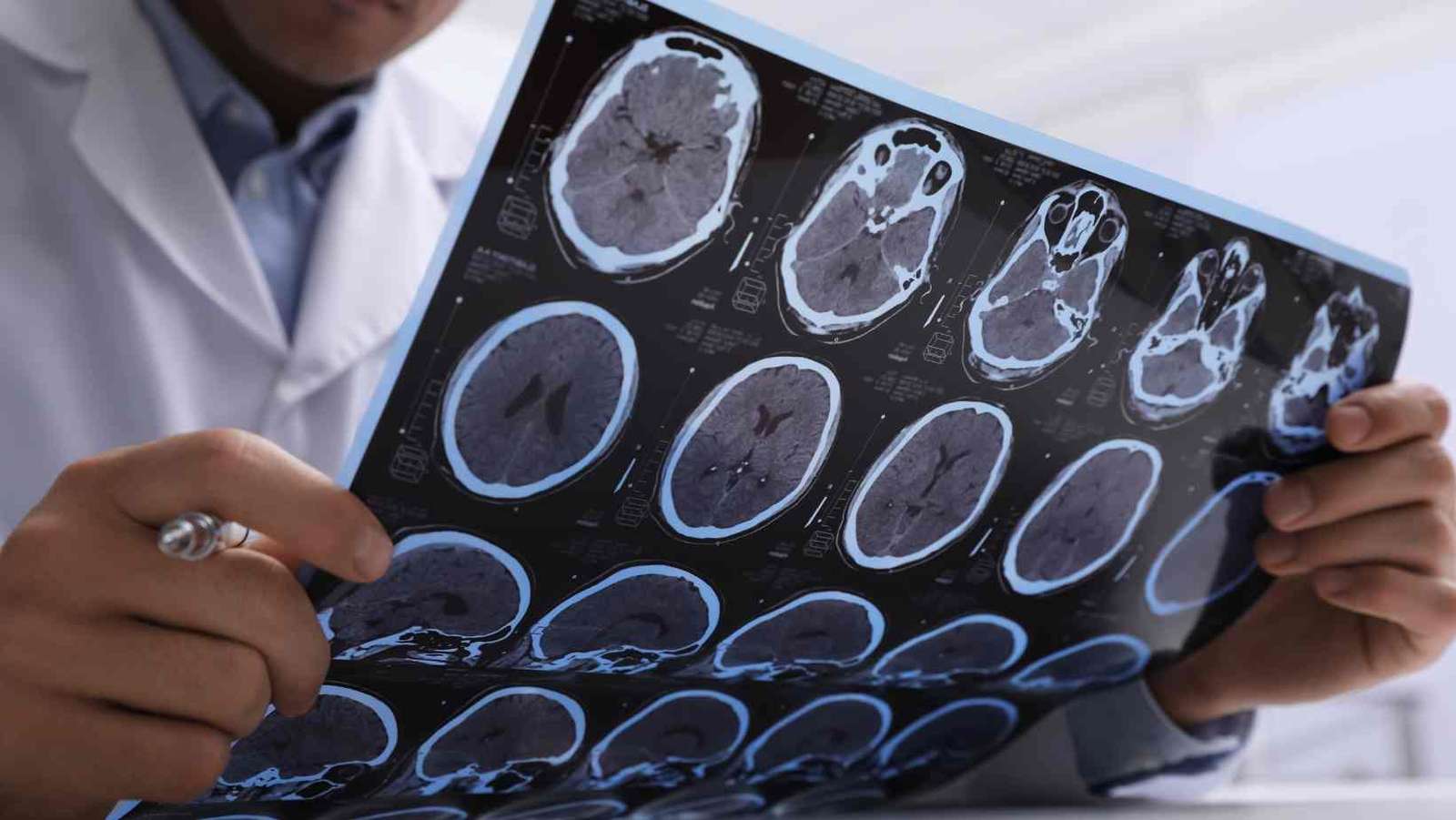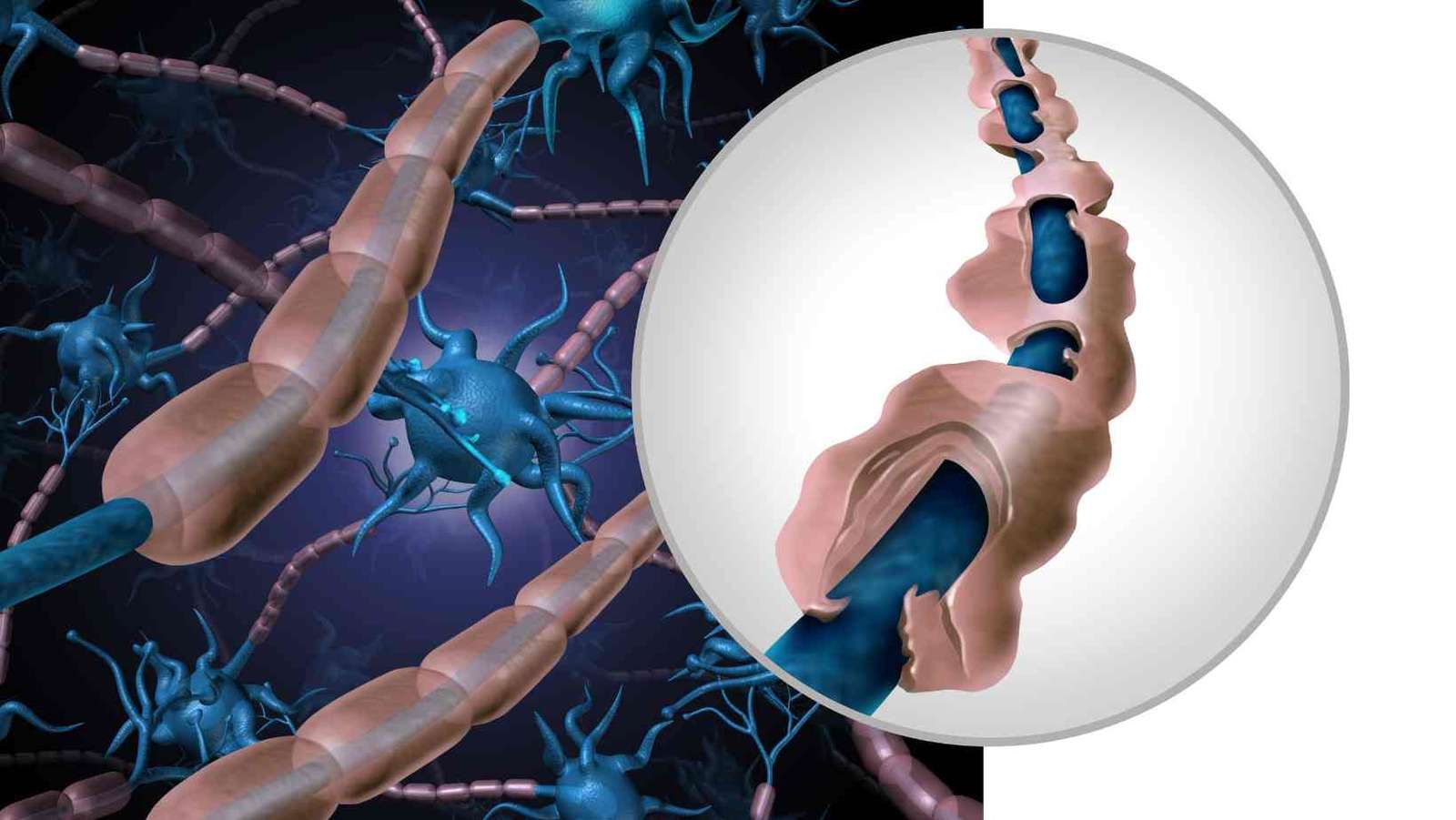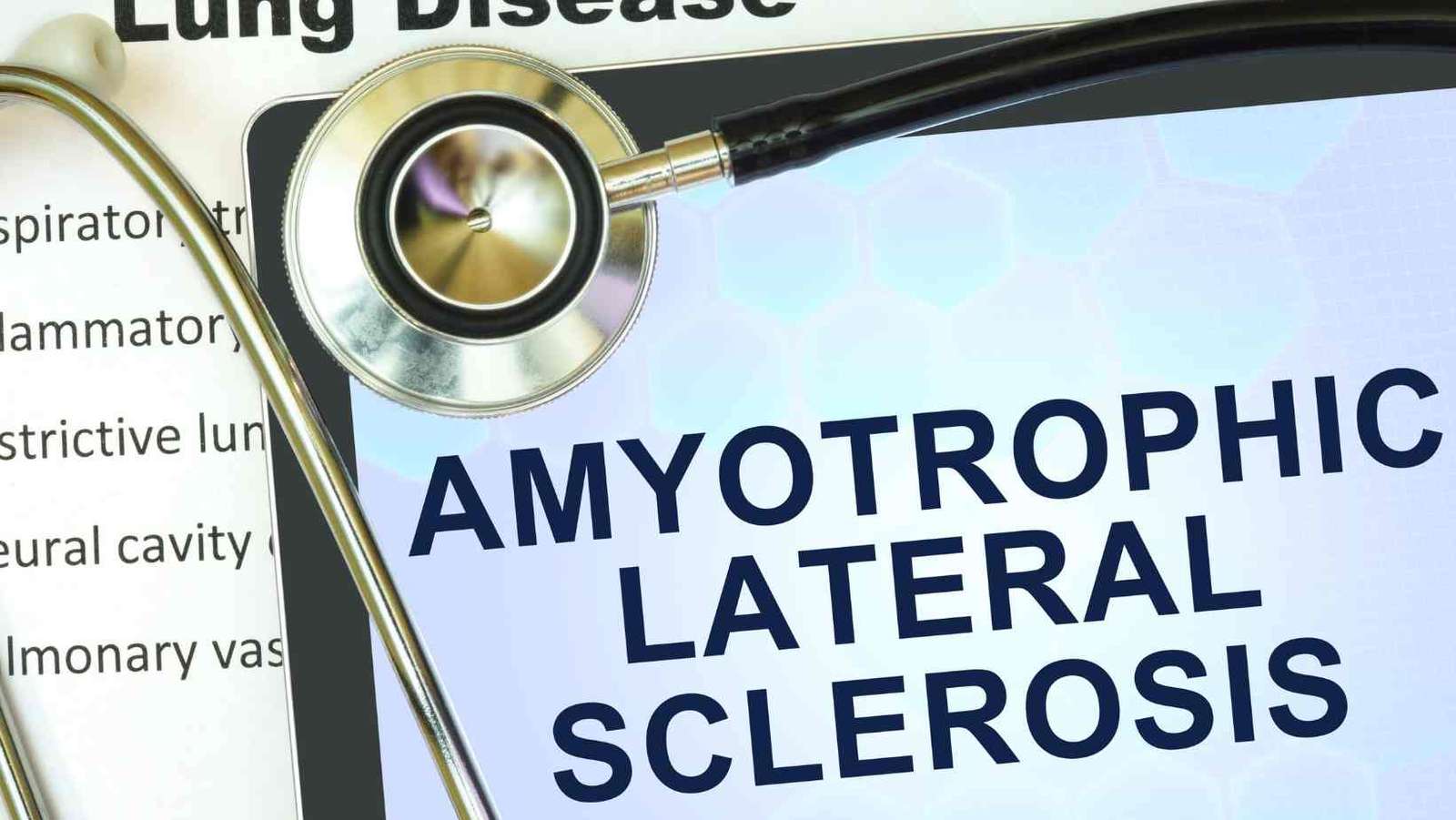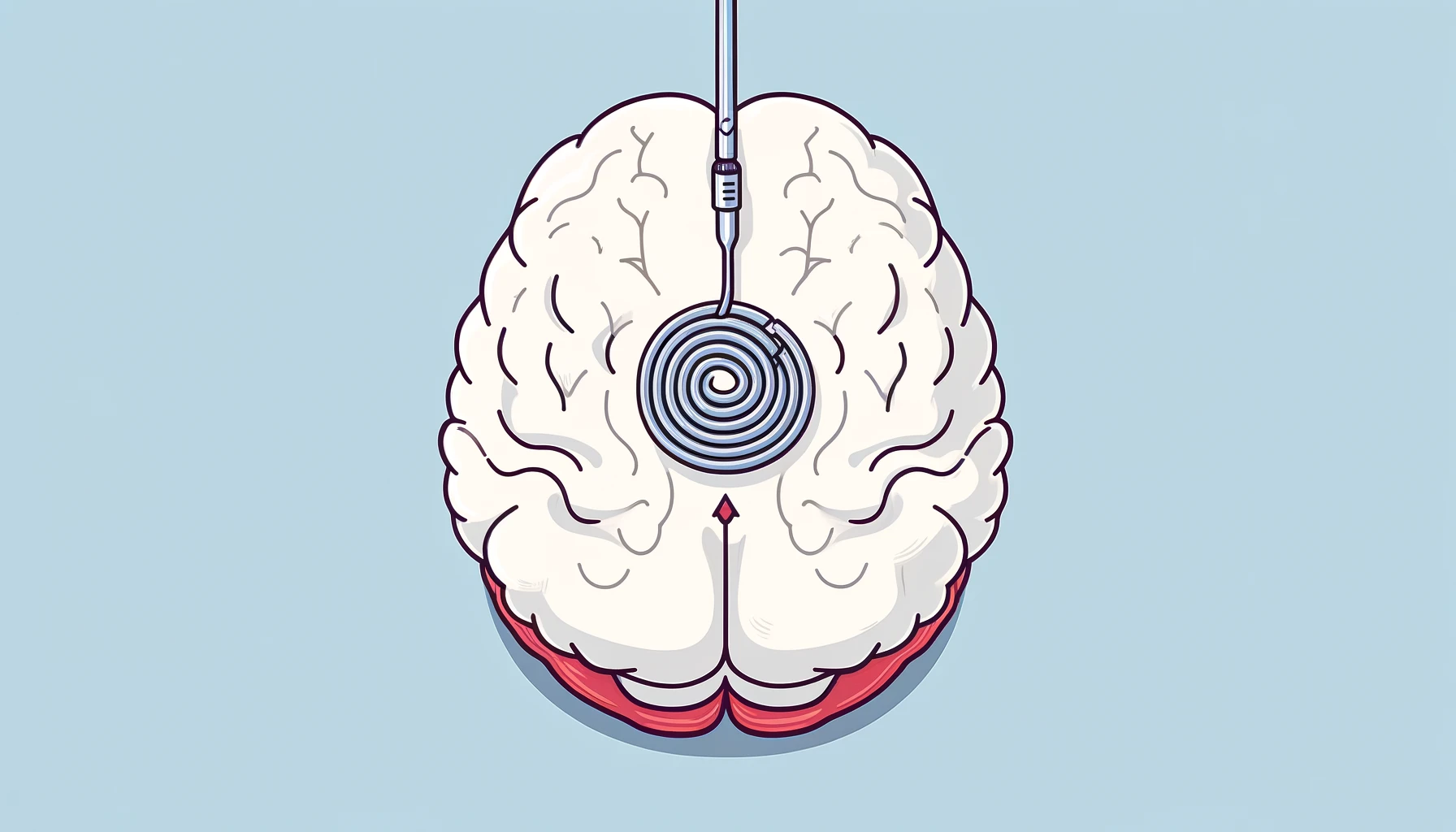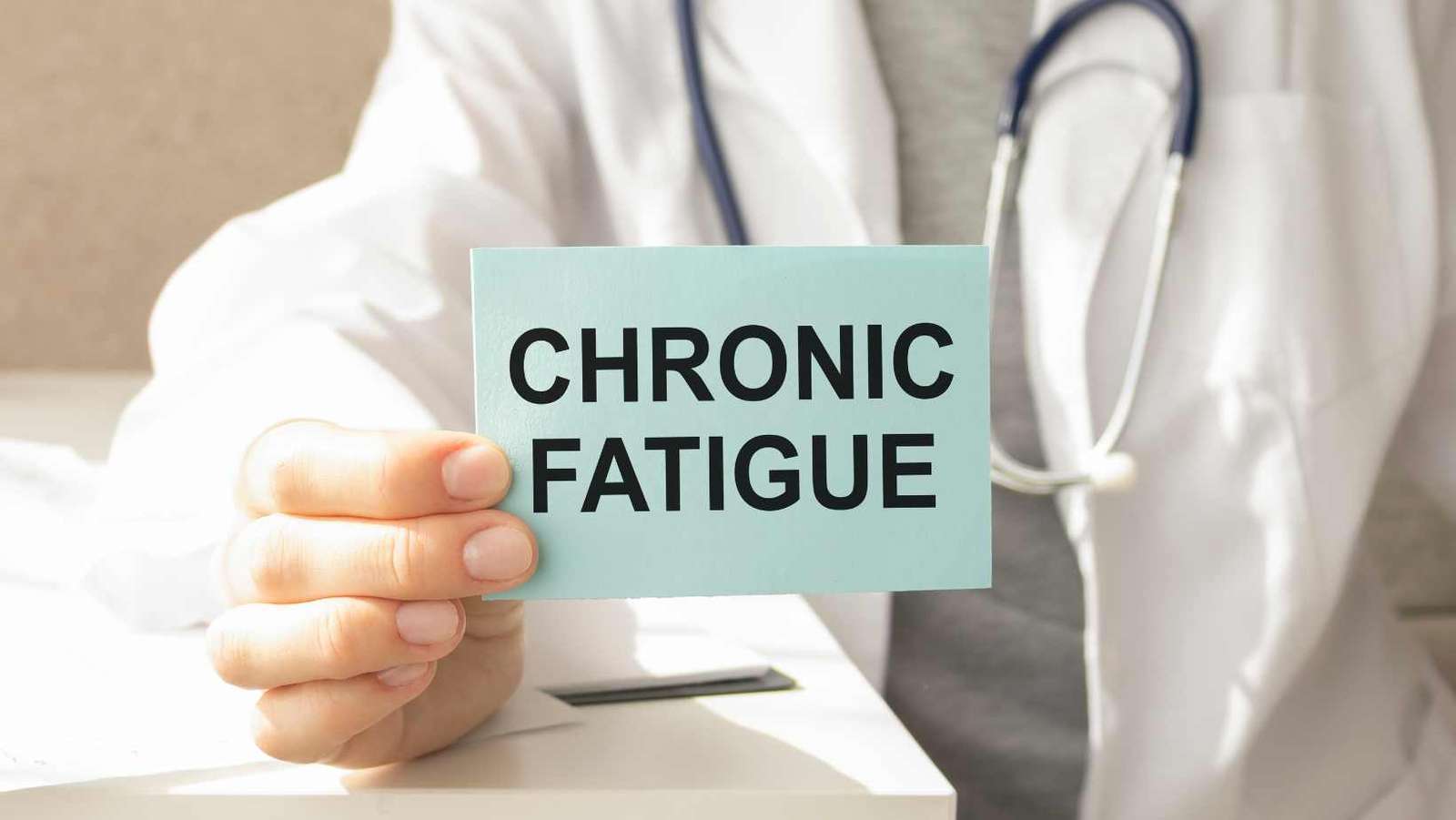Amyotrophic Lateral Sclerosis Diagnosis
What is Amyotrophic Lateral Sclerosis?
Amyotrophic Lateral Sclerosis (ALS) is a progressive disease of the motor cells of the spinal cord.
- A Disease of Nerve Cells: ALS is a disease that targets special cells in our body called nerve cells or neurons. These cells are like messengers that tell our muscles to move.
- Muscle Control Loss: In Amyotrophic Lateral Sclerosis, these motor nerve cells decrease in number, and because of this, the muscles they control don’t respond appropriately. This leads to problems with moving, speaking, and even breathing.
- Progressive Nature: ALS gets worse over time. This means that the symptoms start mild and gradually become more serious.
- Different from Muscle Soreness: It's important to know that ALS is unlike the normal muscle soreness you get after exercising. It's a more severe condition that affects how muscles work.
- Not Just About Age: While it's more common in adults between 40 and 70 years old, ALS can affect younger adults too.
- No Cure Yet: Currently, there's no cure for ALS, but there are treatments that can help manage the symptoms.
- Global Impact: ALS affects people worldwide, and scientists are working hard to understand it better.
Early Amyotrophic Lateral Sclerosis Symptoms
Recognizing the early Amyotrophic Lateral Sclerosis Symptoms can be crucial for getting the right help as soon as possible. Let’s look at some of these early.
Amyotrophic Lateral Sclerosis Symptoms
- Muscle Weakness: One of the first signs people might notice is a general muscle weakness. This could be difficulty doing tasks requiring fine motor skills, like buttoning a shirt, holding a pen, or typing on a keyboard.
- Clumsiness: Increased clumsiness, such as tripping while walking or dropping things more often, can be an early indicator. The muscles aren't listening to the brain's commands correctly.
- Speech Difficulties: Speaking might become more arduous. Some people notice a change in their voice or have trouble pronouncing words, making their speech slurred or slow.
- Muscle Twitching: This includes tiny cramps in the muscles, which are noticeable but usually not painful. It’s like the muscles are sending out signals without any reason.
- Cramps and Stiffness: Muscle cramps can be an early sign, especially in the limbs. There may also be an unusual stiffness in the muscles.
- Fatigue: Feeling more tired than usual, even without doing strenuous activities, can be a symptom. It's as if the body's energy levels are lower than normal.
- Breathing Changes: Some people may experience subtle changes in their breathing pattern, although this is more common in the later stages of ALS.
Amyotrophic Lateral Sclerosis Diagnosis
Here’s how doctors typically go about diagnosing ALS:
Listening to Symptoms
- First Step - Doctor’s Visit: It all starts when someone visits the doctor with concerns about symptoms like muscle weakness or speech difficulties.
- Sharing Health History: The doctor will ask about the person’s health history, including any family history of similar problems.
Physical Examination
- Examining Muscle Strength and Tone: The doctor checks the muscles for strength, stiffness, and signs of twitching.
- Testing Reflexes: Reflex tests help assess whether the nervous system works as it should.
Conducting Various Tests
- Blood and Urine Tests: These tests help rule out other conditions that might mimic ALS.
- MRI Scans: MRI scans of the brain and spinal cord can help see if there are other reasons for the symptoms.
- EMG and Nerve Conduction Studies: EMG (Electromyography) tests the electrical activity of muscles. Nerve conduction studies check how fast nerves send signals.
- Lumbar Puncture (Spinal Tap): This involves taking a sample of spinal fluid to look for abnormalities.
Ruling Out Other Conditions
- Checking for Other Diseases: ALS can look like other diseases, so doctors must ensure it’s not something else.
- Ongoing Assessment: Sometimes, doctors need to monitor symptoms over time before making a definite diagnosis.
The Role of Scans in Amyotrophic Lateral Sclerosis Diagnosis
When it comes to diagnosing Amyotrophic Lateral Sclerosis (ALS), scans play an essential but indirect role. Unlike other conditions where a scan can directly detect the problem, in ALS, scans are mainly used to rule out other diseases.
Types of Scans Used
MRI (Magnetic Resonance Imaging)

- Purpose: MRI scans create detailed images of the brain and spinal cord.
- What It Does: Helps to check for any other conditions, like a stroke or tumor, that could be causing the symptoms.
- How It Helps in ALS: While an MRI can't diagnose ALS directly, it can eliminate other possibilities, a crucial step in the diagnosis process.
How Scans Contribute to Amyotrophic Lateral Sclerosis Diagnosis
- Process of Elimination: In ALS diagnosis, the strategy is often about ruling out other conditions. Since symptoms of ALS can be similar to other neurological diseases, scans ensure that these different conditions aren't the cause.
- Clarity on Symptoms: Sometimes, symptoms might be caused by brain or spinal cord issues that only a scan can reveal, like blockages or growths.
- Safety and Confirmation: Before undergoing more invasive tests (like a lumbar puncture), doctors prefer to do an MRI to ensure it's safe and to gather more information about the patient's condition.
What Scans Don't Show
- No Direct Detection: Scans like MRI don’t show ALS specifically. There are no 'ALS markers' that show up on these scans.
- Not a Standalone Test: An MRI or other scans are part of a more extensive set of tests and evaluations. They are used alongside physical exams, EMG, and blood tests to get the whole picture.
The Bigger Picture in Amyotrophic Lateral Sclerosis Diagnosis
- Part of a Comprehensive Evaluation: The use of scans in ALS is just one piece of the diagnostic puzzle. Doctors combine scan results with other test outcomes and clinical evaluations to make an informed diagnosis.
- Continued Monitoring: In some cases, doctors might use scans over time to monitor the progression of the disease or to check for other complications that can arise.
EMG Findings in ALS
Electromyography (EMG) is a critical diagnostic tool in evaluating Amyotrophic Lateral Sclerosis (ALS). This test provides essential information about the health and function of muscles and the nerves that control them.
What is EMG?
- A Muscle and Nerve Test: EMG measures the electrical activity of muscles.
- How It Works: A small needle is inserted into the muscle, recording electrical activity at rest and during muscle contraction.
EMG Findings in ALS
Fasciculations:
- Tiny Muscle Twitches: Fasciculations are spontaneous muscle cramps common in ALS.
- Seen on EMG: They show up as small, involuntary electrical activities in the muscle.
Fibrillations:
- Muscle Fiber Activity: When muscle fibres are irritated or damaged, they can produce tiny contractions, detected by the EMG needle.
- Indicates Nerve Damage: Fibrillations are a sign of underlying nerve damage.
Reduced Motor Unit Potentials:
- Weak Signals: In ALS, the size and number of signals generated when a muscle contract can be reduced.
- Reflects Muscle Wasting: This is due to the loss of nerve cells that control the muscles.
Polyphasic Potentials:
- Complex Signals: These signals have a more complicated shape and duration.
- Indicates Attempted Regeneration: They occur as the body tries to repair nerve damage.
Interpreting EMG Results
- Pattern Recognition: Doctors look for a specific pattern of abnormalities across multiple muscles and nerves that suggest ALS.
- Differentiating from Other Diseases: Similar findings can occur in other diseases, so doctors use EMG results, tests, and clinical assessments to diagnose ALS.
EMG in Amyotrophic Lateral Sclerosis Diagnosis
- Part of a Larger Puzzle: EMG findings alone cannot confirm ALS, but they are a crucial piece of information to make the diagnosis.
- Monitoring Disease Progression: EMG helps in prognostication and mapping the progression of the disease.
In summary, EMG is a valuable diagnostic tool in ALS that helps to detect and characterize the extent of nerve and muscle damage. While its findings are significant, they are just one part of a comprehensive evaluation needed to diagnose ALS. Understanding these findings helps doctors make accurate diagnoses and plan appropriate management for ALS patients.
Blood Tests and CSF Examination in Amyotrophic Lateral Sclerosis Diagnosis
Blood Tests:
- Purpose: To rule out conditions with similar symptoms.
- Tests Include Assessing creatine kinase (CK) levels and thyroid function. Liver function tests, Kidney function tests, blood sugar levels and certain nutritional deficiencies are also checked.
- Genetic Testing: Identifies mutations associated with familial ALS cases.
CSF Examination:
- Purpose: Provides insights into ALS pathology.
- Markers: Elevated levels of neurofilament proteins and abnormal protein aggregates.
- Correlation: Neurofilament protein levels correlate with ALS severity.
Complementary Diagnostic Tools:
- Limitations: Blood tests and CSF examinations aren't standalone diagnostic tools.
- Additional Diagnostic Methods: Clinical evaluation, electromyography (EMG), and nerve conduction studies.
- Multidisciplinary Approach: ALS diagnosis involves a comprehensive assessment, including neurological evaluations and imaging studies.
Amyotrophic Lateral Sclerosis Supportive Therapy
How to take care of someone with Amyotrophic Lateral Sclerosis?
Today, we're going to talk about a condition called ALS, or Amyotrophic Lateral Sclerosis. ALS is a disease that affects the nerves in our body that help us move our muscles. Imagine the nerves as electric wires and muscles as light bulbs. When the wires don't work well, the light bulbs don't light up. That's kind of what happens in ALS.
What is ALS?
- Amyotrophic Lateral Sclerosis ALS is a disease that makes it hard for people to move their muscles.
- It mostly affects adults, but it’s very rare in kids.
- Neuroscientists are trying to understand why it happens.
What Happens in ALS?
- Muscles Get Weaker: Over time, people with ALS find it hard to walk, talk, eat, and even breathe.
- Different for Everyone: Each person with ALS has a different experience. Some might have trouble holding a pencil, while others might find it hard to speak clearly.
Is There a Cure for ALS?
- No Cure Yet: Sadly, we don’t have a cure for ALS right now.
- Research is Ongoing: Many smart scientists are working hard to find a cure.
Living with ALS
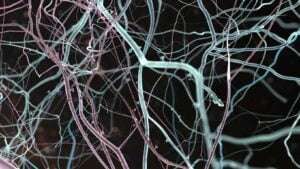
Living with ALS is a journey that requires a lot of care, patience, and understanding. We want to give you a deeper insight into how we can support those living with this condition. Remember, each person with ALS is unique, and their needs can change over time.
Helping with Movement
- Wheelchairs: Customized for comfort and mobility. Helps in moving around when walking becomes difficult.
- Braces and Walkers: Provide support to weakened limbs and help maintain balance.
- Physical Therapy: Gentle exercises to keep muscles as strong and flexible as possible.
- Home Modifications: Ramps, stairlifts, and modified bathrooms for easier access.
Assisting with Communication
- Speech Therapy: Techniques to maintain as much speech function as possible.
- Communication Devices: Such as tablets and computers that can be operated with minimal movement.
- Eye-Tracking Technology: Allows communication by tracking eye movements for those who can’t speak or type.
- Family Education: Teaching family members how to understand and communicate effectively with their loved one.
Eating and Nutrition
- Nutritional Advice: Tailored diets to meet individual health needs and maintain weight.
- Soft or Pureed Foods: Easier to swallow for those with difficulty in chewing.
- Feeding Tubes: In advanced stages, they provide necessary nutrition directly to the stomach.
- Hydration Management: Ensuring adequate fluid intake to prevent dehydration.
Breathing Support
- Breathing Exercises: To strengthen the muscles used for breathing.
- Non-Invasive Ventilation: Machines to assist breathing without needing a tube in the windpipe.
- Cough Assist Devices: Help in clearing the airway.
- Regular Monitoring: Checking lung function and making adjustments to care as needed.
Emotional and Psychological Support
- Counseling Services: For both patients and families to cope with emotional challenges.
- Support Groups: Connecting with others who are going through similar experiences.
- Recreational Therapy: Engaging in enjoyable activities to improve mood and mental health.
- End-of-Life Care Planning: Discussing and planning for future care preferences and decisions.
Supporting Daily Activities
- Occupational Therapy: To maintain independence in daily activities as much as possible.
- Adaptive Equipment: Special tools to help with dressing, eating, and other personal care tasks.
- Personal Care Assistance: Home health aides to assist with daily living activities.
- Family Training: Educating family members on how to provide practical support.
Community Involvement and Resources
- Local ALS Associations: Provide resources, information, and support services.
- Educational Workshops: For patients and caregivers to learn about managing ALS.
- Transportation Services: Special transportation options for medical appointments and outings.
- Financial and Legal Advice: Guidance on managing the financial and legal aspects of living with ALS.
Continuous Medical Care
- Regular Medical Checkups: To monitor the progression of Amyotrophic Lateral Sclerosis Symptoms.
- Medication Management: To address symptoms like muscle stiffness, cramps, or excess saliva.
- Team Approach: Collaboration between neurologists, therapists, nurses, and other specialists for comprehensive care.
- Research and Clinical Trials: Information about the latest ALS research and potential participation in trials.
Encouraging Independence and Quality of Life
- Empowering Patients: Encouraging self-care and decision-making as much as possible.
- Personalized Care Plans: Tailoring care to each individual’s preferences and needs.
- Promoting Social Interaction: Encouraging involvement with family and community to maintain social connections.
- Spiritual Support: Addressing spiritual needs and concerns as part of holistic care.
Taking Care of Personal Needs for ALS Patients
Caring for personal needs is a crucial aspect of supporting someone with ALS. Here's a guide to help caregivers and family members provide the best care for their loved ones.
Personal Hygiene
- Bathing: Use of shower chairs and handheld showers. Assistance with bathing while ensuring safety and dignity.
- Skin Care: Regular skin checks to prevent sores, especially for those who are bedridden.
- Oral Care: Gentle brushing and mouthwash to maintain oral hygiene, even if the person can't spit out water.
- Hair and Nail Care: Regular hair washing and grooming, along with nail care to prevent ingrown nails and infections.
Dressing
- Adaptive Clothing: Clothes with Velcro or snaps that are easier to put on and take off.
- Dressing Aids: Tools like dressing sticks and zipper pullers for those who can dress with minimal assistance.
- Assistance Techniques: Caregivers should learn proper techniques to assist with dressing while minimizing discomfort.
Toileting
- Accessible Toilets: Raised toilet seats or commode chairs for easier access.
- Incontinence Care: Use of absorbent products and skin protection creams as needed.
- Routine Schedule: Establishing a regular toileting schedule to reduce accidents.
Eating and Drinking
- Assistive Eating Tools: Utensils with larger handles, plate guards, and non-slip mats.
- Feeding Assistance: Gentle, patient assistance with feeding, ensuring the person is in an upright position to prevent choking.
- Hydration Strategies: Offering small sips of fluids frequently, using straws or special cups if needed.
Mobility
- Transfers: Safe techniques for moving the person from bed to chair and vice versa.
- Position Changes: Regularly changing the person's position to avoid pressure sores and improve comfort.
- Mobility Aids: Using walkers, wheelchairs, or scooters as appropriate for the person's mobility level.
Communication
- Communication Boards or Devices: For those who struggle with speech, using alternative communication methods.
- Patience in Conversation: Giving the person time to express themselves, not rushing or finishing sentences for them.
- Eye Contact: Maintaining eye contact and showing attentiveness to non-verbal cues.
Sleep
- Comfortable Bedding: Ensuring a comfortable mattress and pillows to prevent sores and aid in better sleep.
- Sleep Aids: Using devices like CPAP machines if there are breathing issues during sleep.
- Nighttime Care: Arranging for assistance during the night if needed, for bathroom trips or repositioning.
Emotional Support
- Encouraging Independence: Allowing the person to do as much as they can by themselves to promote a sense of control.
- Listening and Empathy: Being an understanding listener, validating their feelings and frustrations.
- Privacy and Respect: Maintaining their dignity and privacy, especially during personal care tasks.
Living with ALS is about adapting to changes and focusing on what can be done. With the right support and care, people with ALS can lead meaningful and fulfilling lives.
Amyotrophic Lateral Sclerosis Treatment
While there's no cure for ALS yet, there are treatments and medicines that can make life easier for those who have it. Let's look at the options that are available.
Medicines for Amyotrophic Lateral Sclerosis Treatment
Riluzole is a medicine that doctors often recommend to people with Amyotrophic Lateral Sclerosis ALS, which is a disease that affects muscle movement.
Approved by Experts: In 1995, US FDA, said it was safe to use.
How Riluzole Works ?
- Fights a Brain Chemical: In ALS, there's a brain chemical called glutamate that can harm nerves. Riluzole helps to stop glutamate from doing this damage.
- Works in Three Ways: It slows down the release of glutamate, blocks some brain signals, and changes how nerves handle electricity.
- Still a Mystery: Even though it helps, doctors are still trying to fully understand how exactly Riluzole works in ALS.
- Taking the Medicine: It's a pill that people take every day.
Riluzole's Impact on ALS
- Riluzole is particularly helpful for people with ALS, especially in the early stages of the disease. Here's a quick summary of its benefits based on research:
Who Benefits Most: It's most effective for those with definite or probable ALS, symptoms for less than five years, good lung function (FVC >60%), and no tracheostomy ( procedure where a hole is created in throat to breathe).
Research Findings
- First Trial: In a study of 155 patients, those taking Riluzole had a higher survival rate at 12 months compared to those not taking it (74% vs. 58%). For patients with bulbar-onset ALS, the survival benefit was even more significant.(1)
- Second Trial: In a larger study with 959 patients, Riluzole again showed a higher survival rate without tracheostomy after 18 months compared to those not taking it.(2)
Edaravone is another medicine used to treat people with ALS. Here's what you need to know:
What is Edaravone?
It's a medicine that fights against something called oxidative stress, which can harm nerve cells in ALS patients.
- How It Helps: Edaravone is thought to slow down the worsening of ALS, especially in the early stages of the disease.
Approval: It was approved in Japan and Korea first, and then by the United States Food and Drug Administration (FDA) in 2017 for all ALS patients.
Research on Edaravone
- Clinical Trials: Studies were done to see how well Edaravone works.
- First Study Findings: In a 24-week trial with 206 ALS patients, the benefit of Edaravone wasn't clear at first, but later analysis showed it helped certain patients more, especially those in early stages of ALS.(3)
- Second Study Findings: Another study with 137 patients showed that Edaravone slowed down the disease's progress by about 33% in patients with early-stage ALS.(4)
Sodium Phenybutyrate-Taurursodiol for ALS Treatment (5)
Sodium Phenybutyrate-Taurursodiol, also known as PB-TURSO, is a newer treatment for ALS. Let's break down what it is and how it helps:
What are These Medicines?

- Sodium Phenybutyrate: This part of the medicine helps reduce stress in a part of the cell called the endoplasmic reticulum.
- Taurursodiol: This component helps keep cells alive longer by protecting a part of the cell called the mitochondria, which is like the cell's power source.
Combined Effects in PB-TURSO - Reducing Neuronal Cell Death: When these two are put together in PB-TURSO, they work to slow down the death of nerve cells.
Approval and Use - Recommended for All ALS Patients: Doctors suggest PB-TURSO for anyone with ALS.
- Slows Down Disease Progression: Studies have shown that it can slow the worsening of Amyotrophic Lateral Sclerosis Symptoms.
- Approval Status: It was approved in Canada in June 2022 and by the FDA in the United States for all ALS patients in September 2022.
- Tofersen: A Targeted Treatment for SOD1-Associated ALS
Tofersen is a specialized treatment for a specific type of ALS known as SOD1-associated ALS. Here's a simple explanation:
What is SOD1-Associated ALS?
- Genetic Link: About 15% of familial ALS cases are linked to changes in a gene called SOD1.
- Protein Problems: These genetic changes lead to issues with protein folding, causing problems in nerve cells.
How Does Tofersen Work?
- Gene-Silencing Therapy: Tofersen uses a special technique called antisense oligonucleotide. This therapy targets the genetic messages (mRNA) that create the SOD1 protein, reducing its production.
- Focusing on the Cause: By targeting the SOD1 gene, Tofersen directly addresses the root cause of this type of ALS.
Approval and Use
- Specific for SOD1 ALS: Tofersen is suggested for ALS patients who have these specific genetic changes in SOD1.
FDA Approval: In April 2023, the United States Food and Drug Association (FDA) approved Tofersen for use in patients with ALS linked to SOD1 pathogenic variants.
Supportive Medications
1. For Muscle Problems
- Muscle Relaxants: These help when muscles get stiff or have spasms (sudden tightness).
Examples: Baclofen and Tizanidine are common ones.
2. For Trouble Swallowing
- Thickening Powders: Added to drinks to make them easier to swallow.
- Diet Changes: Eating softer foods that are easier to chew and swallow.
3. For Breathing Issues
- Cough Assistants: Machines to help people cough and breathe easier.
- Breathing Machines: Sometimes people need a little help to breathe, especially at night.
4. For Emotional Changes
- Antidepressants: These help if someone feels very sad or worried because of ALS.
- Counseling: Talking to a therapist can also make a big difference.
5. Other Important Parts of Treatment
Physical Therapy
- Exercises: Gentle activities to keep muscles as strong as possible.
- Stretches: To keep muscles flexible and prevent stiffness.
Occupational Therapy
- Learning New Ways: Finding different ways to do everyday tasks like dressing or eating.
- Using Tools: Special equipment to make life easier, like grabbers to pick things up.
Speech Therapy
- Speaking Exercises: To keep talking as clear as possible for as long as possible.
- Alternative Communication: Learning to use computers or boards to communicate when speaking gets tough.
Nutritional Support
- Healthy Eating Plans: Making sure people with ALS get the right kind of foods to stay strong.
- Feeding Tubes: In later stages, some people might need tubes to help them eat.
Emotional and Social Support
- Support Groups: Meeting other people with ALS to share stories and tips.
- Family Support: Helping families understand ALS and how to care for their loved ones.
Conclusion
While ALS is a tough disease, these treatments and supportive care can make a big difference. Neurologists, therapists, and scientists are working hard to find even better ways to help people with ALS. Remember, every person with ALS is different, so their treatment will be unique to them. It's all about making life as comfortable and enjoyable as possible.
References
- Bensimon G, Lacomblez L, Meininger V. A controlled trial of riluzole in amyotrophic lateral sclerosis. ALS/Riluzole Study Group. N Engl J Med. 1994 Mar 3;330(9):585-91. doi: 10.1056/NEJM199403033300901. PMID: 8302340.
- Lacomblez L, Bensimon G, Leigh PN, Guillet P, Meininger V. Dose-ranging study of riluzole in amyotrophic lateral sclerosis. Amyotrophic Lateral Sclerosis/Riluzole Study Group II. Lancet. 1996 May 25;347(9013):1425-31. doi: 10.1016/s0140-6736(96)91680-3. PMID: 8676624.
- Writing Group; Edaravone (MCI-186) ALS 19 Study Group. Safety and efficacy of edaravone in well defined patients with amyotrophic lateral sclerosis: a randomised, double-blind, placebo-controlled trial. Lancet Neurol. 2017 Jul;16(7):505-512. doi: 10.1016/S1474-4422(17)30115-1. Epub 2017 May 15. PMID: 28522181.
- Abe K, Itoyama Y, Sobue G, Tsuji S, Aoki M, Doyu M, Hamada C, Kondo K, Yoneoka T, Akimoto M, Yoshino H; Edaravone ALS Study Group. Confirmatory double-blind, parallel-group, placebo-controlled study of efficacy and safety of edaravone (MCI-186) in amyotrophic lateral sclerosis patients. Amyotroph Lateral Scler Frontotemporal Degener. 2014 Dec;15(7-8):610-7. doi: 10.3109/21678421.2014.959024. Epub 2014 Oct 6. PMID: 25286015; PMCID: PMC4266079.
- Paganoni S, Macklin EA, Hendrix S, Berry JD, Elliott MA, Maiser S, Karam C, Caress JB, Owegi MA, Quick A, Wymer J, Goutman SA, Heitzman D, Heiman-Patterson T, Jackson CE, Quinn C, Rothstein JD, Kasarskis EJ, Katz J, Jenkins L, Ladha S, Miller TM, Scelsa SN, Vu TH, Fournier CN, Glass JD, Johnson KM, Swenson A, Goyal NA, Pattee GL, Andres PL, Babu S, Chase M, Dagostino D, Dickson SP, Ellison N, Hall M, Hendrix K, Kittle G, McGovern M, Ostrow J, Pothier L, Randall R, Shefner JM, Sherman AV, Tustison E, Vigneswaran P, Walker J, Yu H, Chan J, Wittes J, Cohen J, Klee J, Leslie K, Tanzi RE, Gilbert W, Yeramian PD, Schoenfeld D, Cudkowicz ME. Trial of Sodium Phenylbutyrate-Taurursodiol for Amyotrophic Lateral Sclerosis. N Engl J Med. 2020 Sep 3;383(10):919-930. doi: 10.1056/NEJMoa1916945. PMID: 32877582; PMCID: PMC9134321.
- Abati E, Bresolin N, Comi G, Corti S. Silence superoxide dismutase 1 (SOD1): a promising therapeutic target for amyotrophic lateral sclerosis (ALS). Expert Opin Ther Targets. 2020 Apr;24(4):295-310. doi: 10.1080/14728222.2020.1738390. Epub 2020 Mar 14. PMID: 32125907.
Amyotrophic Lateral Sclerosis Symptoms
What is Amyotrophic Lateral Sclerosis?
Imagine your body is like a robot. This robot works smoothly because wires (nerves) send messages from the brain to different parts. Amyotrophic Lateral Sclerosis is a condition where these wires start to wear out. When this happens, the robot (your body) finds it more challenging to walk, talk, and even eat.
Amyotrophic Lateral Sclerosis Symptoms
Amyotrophic Lateral Sclerosis Symptoms are signs our body gives us to say something is not working right. In ALS, these signs can be different for each person, but here are some common ones:
Muscle Weakness
How it Feels: Imagine trying to lift a heavy book but finding it surprisingly difficult. This is how muscle weakness in ALS can feel. It often starts in the hands, feet, or legs.
What Happens: Simple tasks like buttoning your shirt, writing with a pencil, or walking can become harder. It's like your muscles are not listening to your brain's commands.
Clumsiness and Falling
Tripping and Dropping Things: People with ALS might trip more often, even on flat surfaces. They may also drop things they hold, like a glass of water, because their grip isn't as firm.
Balance Issues: Standing up or walking straight can be a challenge. It's like trying to walk on a wobbly bridge.
Trouble Speaking or Swallowing
Slurred Speech: Words might not come out clearly. It sounds like talking with a mouth full of marshmallows.
Difficulty Swallowing: Eating foods, primarily solids, can be hard. Sometimes, even drinking water can cause coughing or choking.
Muscle Cramps and Twitching
Unexpected Muscle Movements: It's like your muscles are playing a game without your permission, causing sudden, small movements.
Discomfort: These cramps and twitches can be uncomfortable and sometimes painful.
Feeling Tired
Increased Fatigue: Everyday activities, like walking your dog or playing a game, might leave you feeling more tired than before. It's like running a race without having enough sleep.
Changes in How You Think and Feel
Emotional Changes: People with ALS might feel sad, happy, or angry more than usual without an apparent reason. It's like having a rollercoaster of emotions.
Cognitive Changes: Some people struggle to concentrate, remember things, or make decisions. It's like when your computer runs slowly and takes time to open files.
Understanding the Progression
Gradual Increase: These symptoms usually start slowly and get worse over time.
Spread of Symptoms: They might begin in one part of the body, like the hand, and gradually spread to other parts.
Facts about Amyotrophic Lateral Sclerosis
How Common is ALS in Europe and North America?
Between about 1.5 and 4.7 people out of every 100,000 get ALS each year.
For every 100,000 people, about 2.7 to 7.4 have ALS at any given time.
ALS in Different Groups in the United States:
More White people tend to get ALS compared to other racial and ethnic groups.
Men vs. Women with ALS:
More men get ALS compared to women, especially when they're younger than 70. But after 70, the numbers between men and women are almost the same.
Age and ALS:
People are more likely to get ALS as they get older, particularly after 40.
The highest chance of getting ALS is around age 74.
How Many New Cases in the U.S.?
About 7,000 new cases of ALS are diagnosed in the U.S. each year.
Changes Over Time:
The number of people getting ALS and the number of deaths from ALS have been slowly increasing over the years. This might be partly because people are living longer.
Risk Factors for ALS: Who Gets ALS?
Main Risk Factors for ALS
- Age: Older people have a higher risk of getting ALS.
- Family History: If ALS is in your family, you might have a higher risk.
- Possible Risk Factor - Smoking: Smoking cigarettes might increase the risk of getting ALS.
Genetics and Sporadic ALS
There's ongoing research about how genetic differences might play a role in ALS that occurs without a family history.Other Possible Risk Factors with Mixed Evidence:
There are many other potential risk factors, but the evidence isn't strong or is conflicting. These include jobs like military service, agricultural work, or working in factories; exposure to things like pesticides, heavy metals, or low-frequency magnetic fields; physical factors like athleticism or trauma; and even early hair loss or having less body fat before getting sick.
Socioeconomic Status Paradox:
Strangely, ALS seems more common in people with higher-status jobs, where exposure to harmful substances is less likely, and less common in lower-status jobs with more exposure to such chemicals.
- Gut Microbiome Link:
- Some studies suggest changes in gut bacteria might be connected to ALS, offering potential treatment opportunities.
- Heavy Metals Controversy:
- This connection remains controversial despite some cases linking heavy metals like mercury, lead, and aluminium to ALS.
- Environmental Triggers and Gulf War Veterans:
- Young U.S. Gulf War veterans have a higher chance of getting ALS, but it's unclear why. It might be related to their experiences during service, but no specific cause has been found.
- Military Veterans and ALS:
- Military veterans, in general, seem to have a higher risk of dying from ALS, regardless of when or where they served. This suggests the risk is unrelated to a specific event, like the Gulf War.
- Potential Military-Related Risk Factors:
- Various factors in military service, like exposure to certain chemicals, physical injuries, or intense physical activity, are suspected but not confirmed as risk factors for ALS.
- In summary, age and family history are the main known risk factors for ALS. Smoking might be a risk factor, too. Other suspected risk factors, especially related to military service, need more research to be confirmed.
Does ALS run in families?
Familial ALS" means the type of ALS that runs in families. This kind of ALS makes up about 5 to 10 per cent of all ALS cases. The other 90 to 95 per cent of cases are called "sporadic" or "idiopathic," meaning they happen randomly and the exact cause isn't known. Genetic testing for at least SOD1 and C9ORF72 is encouraged in all patients
Where is ALS most seen in the world?
In the western Pacific, there are three places where ALS is ubiquitous: Guam, West New Guinea, and the Kii Peninsula in Japan. The first time scientists noticed a lot of ALS cases in one area was among the native people of Guam.
In Guam, ALS often happens along with Parkinsonism (which is like Parkinson's disease but not precisely the same) and Alzheimer's disease. Because of this combination, the condition there is called "amyotrophic lateral sclerosis-parkinsonism dementia complex", or ALS-PDC for short. This name highlights that people with the condition often have amyotrophic lateral sclerosis symptoms, Parkinson's disease, and dementia (profound memory loss and confusion) all at the same time.
Why does ALS happen? What’s the cause of ALS?
The exact cause of ALS, which is a disease affecting nerve cells in the brain and spinal cord, isn't known yet. However, scientists have some ideas about what might be going wrong inside the body to cause ALS. These include:
- Abnormal RNA Processing: RNA helps carry instructions from our DNA to make proteins. If something goes wrong in this process, it can cause cell problems.
- Disorders of Protein Quality Control: Our cells have a system for ensuring proteins are correctly made and folded. If this system fails, it can lead to diseases like ALS.
- Excitotoxicity: This is when nerve cells get damaged or die because they are overstimulated by chemicals in the brain.
- Cytoskeletal Derangements: The cytoskeleton helps maintain a cell's shape and structure. Problems here can lead to cell damage.
- Mitochondrial Dysfunction: Mitochondria are like the power plants of our cells. Cells can't get the energy they need if they don't work correctly.
- Viral Infections: Some researchers think certain viruses might trigger ALS.
- Apoptosis: This is a process where cells are programmed to die. If this process goes wrong, it can lead to diseases.
- Growth Factor Abnormalities: Growth factors help regulate cell growth. Changes in these factors could contribute to ALS.
- Inflammatory Responses: Sometimes, the body's immune response can cause damage to its tissues, which might be a factor in ALS.
- Others: There are many other theories, but more research is needed to understand them.
Effective Chronic Fatigue Syndrome Treatment Options
Are you or someone you know struggling with Chronic Fatigue Syndrome (CFS)? Despite there being no known cure for this complex condition, there are treatment options available that can help manage the symptoms and improve your quality of life. In this article, we will explore some effective chronic fatigue syndrome treatment options that have shown promise in alleviating the impact of CFS on daily activities and well-being. Whether you are looking for medications, lifestyle changes, or complementary therapies, we have got you covered. Let's dive in!
Diagnosis of Chronic Fatigue Syndrome
Diagnosing Chronic Fatigue Syndrome (CFS) can be a complex process as there is no specific test to confirm the condition. It is crucial to rule out other potential causes of fatigue, including sleep disorders, medical conditions, and mental health issues.
The diagnostic criteria proposed by the United States Institute of Medicine are used to determine if an individual meets the criteria for a CFS diagnosis. These criteria include:
- Severe fatigue: The fatigue experienced must be severe enough to interfere with daily activities.
- New or definite onset: The fatigue should be of new or definite onset, meaning it is not a result of ongoing exertion or other factors.
- Unrelieved by rest: Fatigue should not be alleviated by rest or sleep.
- Worsening with exertion: Physical or mental exertion should worsen the fatigue symptoms.
In addition to these criteria, individuals with CFS may also experience other symptoms, such as difficulties with memory and concentration, dizziness upon standing (orthostatic intolerance), and unrefreshing sleep. These symptoms must persist for at least six months and occur at least half the time at moderate to severe intensity.
It is important for individuals experiencing these symptoms to consult with a healthcare professional who is knowledgeable about CFS for a thorough evaluation and diagnosis.
Treatment Options for Chronic Fatigue Syndrome
While there is no cure for Chronic Fatigue Syndrome (CFS), there are various treatment options available to manage and relieve the symptoms experienced by individuals with CFS. These treatment options focus on providing symptom relief and improving the overall quality of life for CFS patients.
Medications:
Medications can be utilized to address specific symptoms associated with CFS, such as pain, orthostatic intolerance, and depression. Healthcare professionals may prescribe pain relievers, anti-depressants, or medications to regulate blood pressure to help alleviate these symptoms.
Pacing:
Pacing is a commonly recommended strategy for managing CFS symptoms. It involves finding a balance between activity and rest to avoid exacerbating symptoms and conserve energy. By listening to your body's needs and pacing yourself, you can better manage symptoms and reduce the impact of CFS on your daily life.
Lifestyle Modifications:
In addition to medications and pacing, making certain lifestyle modifications can also contribute to the management of CFS symptoms. These modifications may include improving sleep hygiene, managing stress levels, incorporating relaxation techniques (such as deep breathing or meditation) into your routine, maintaining a balanced diet, staying hydrated, and engaging in gentle exercise or physical activities within your limits.
| Treatment Options | Benefits |
|---|---|
| Medications | - Address specific CFS symptoms - Provide relief from pain, orthostatic intolerance, and depression |
| Pacing | - Manage symptoms by finding a balance between activity and rest - Conserve energy and prevent symptom exacerbation |
| Lifestyle Modifications | - Improve sleep quality and manage stress levels - Support overall well-being and reduce symptom severity |
Working with Healthcare Professionals
It is important to work closely with healthcare professionals to determine the most appropriate treatment approach for your specific needs. They can provide valuable guidance and support in designing a personalized treatment plan tailored to your individual requirements. By collaborating with healthcare professionals, you can optimize your CFS treatment and achieve the best possible outcomes.

Lifestyle and Self-Care Strategies for CFS Management
In addition to medical treatments, lifestyle changes and self-care strategies are essential for effectively managing Chronic Fatigue Syndrome (CFS). By implementing these strategies, you can find relief from symptoms, cope with CFS more effectively, and improve your overall quality of life.
Improving Sleep Hygiene
Achieving a good night's rest is crucial for managing CFS symptoms. To improve your sleep hygiene:
- Create a relaxing bedtime routine
- Avoid caffeine and stimulating activities before bed
- Turn off electronic devices before sleep
Managing Stress Levels
Stress can exacerbate CFS symptoms, so it's important to learn effective stress management techniques:
- Practice deep breathing exercises to calm your mind and body
- Engage in activities that bring you joy and help you relax
- Consider mindfulness meditation to reduce stress
Embracing Relaxation Techniques
Relaxation techniques can help alleviate symptoms and promote overall well-being:
- Try deep breathing exercises to relax your body and mind
- Explore meditation or yoga to promote relaxation
- Consider gentle stretching exercises to relieve tension
Maintaining a Balanced Diet
Your diet plays a vital role in managing CFS. Consider the following dietary tips:
- Eat a well-balanced diet rich in fruits, vegetables, lean proteins, and whole grains
- Stay hydrated by drinking plenty of water throughout the day
- Avoid excessive consumption of processed foods and sugary snacks
Engaging in Gentle Exercise
Physical activity is essential but should be tailored to your energy levels. Consider the following:
- Listen to your body and pace yourself during physical activity
- Choose low-impact exercises such as walking, swimming, or gentle yoga
- Avoid overexertion and rest when needed
You can find relief from CFS symptoms by implementing these lifestyle changes and self-care strategies. Remember to consult with your healthcare professional to develop a personalized plan that suits your specific needs.

Complementary and Alternative Therapies for CFS
When it comes to managing Chronic Fatigue Syndrome (CFS), many individuals seek out complementary and alternative therapies in addition to their medical treatments. While these therapies may offer some relief from symptoms, it is important to note that the evidence for their effectiveness is limited.
Acupuncture
One commonly used therapy for CFS is acupuncture. This ancient Chinese practice involves the insertion of thin needles into specific points on the body to promote healing and balance. Some individuals with CFS have reported improvements in energy levels, sleep quality, and overall well-being after undergoing acupuncture sessions. However, it is crucial to consult with a trained acupuncturist and discuss your specific condition and symptoms before pursuing this treatment.
Massage Therapy
Another alternative therapy that individuals with CFS often explore is massage therapy. This hands-on technique involves the manipulation of soft tissues in the body to release tension, promote relaxation, and reduce pain. Massage therapy is known to improve circulation, relieve muscle stiffness, and alleviate stress, which can be beneficial for individuals with CFS. However, it is important to find a skilled and experienced massage therapist who understands the unique needs and sensitivities of CFS patients.
While acupuncture and massage therapy may offer some relief and help individuals with CFS manage their symptoms, it's important to remember that each person's experience may vary. Consulting with healthcare professionals, such as acupuncturists and massage therapists, can provide valuable insights and guidance on which therapies may be suitable for your specific condition.
It is crucial to exercise caution when considering alternative treatments and supplements for CFS. Some treatments may be expensive or potentially harmful, and not all therapies have been scientifically proven to effectively treat CFS. Always consult with healthcare professionals before trying any new therapies or supplements. They can help you make informed decisions and ensure your safety and well-being.

| Complementary Therapies | Description |
|---|---|
| Acupuncture | Traditional Chinese practice involving the insertion of thin needles into specific points on the body to promote healing and balance. |
| Massage Therapy | Hands-on technique involving the manipulation of soft tissues in the body to release tension, promote relaxation, and reduce pain. |
Conclusion
Managing Chronic Fatigue Syndrome (CFS) can be a challenging journey, but there are various effective treatment options and strategies available to improve your quality of life. By working closely with healthcare professionals and developing a personalized treatment plan, you can find relief from the symptoms and navigate the complexities of this condition.
One of the key aspects of managing CFS is medication. Depending on your specific symptoms, your healthcare provider may prescribe pain relievers, anti-depressants, or medications to regulate blood pressure. These medications can help alleviate symptoms and improve your overall well-being.
In addition to medication, pacing and lifestyle changes play a crucial role in managing CFS. Pacing involves finding a balance between activity and rest, allowing you to stay within your energy limits. By listening to your body and pacing yourself, you can prevent symptom exacerbation and conserve energy for activities that are important to you.
Furthermore, incorporating self-care strategies such as improving sleep hygiene, managing stress levels, and engaging in relaxation techniques can greatly contribute to managing CFS. By taking care of your physical and mental well-being, you can enhance your quality of life and effectively cope with the challenges of this condition.
While complementary and alternative therapies like acupuncture and massage therapy may provide some relief, it is important to consult with your healthcare professional before trying any new treatments or supplements. Their guidance will ensure that the therapies you choose are safe and effective for managing CFS.
Remember, managing Chronic Fatigue Syndrome is a journey, and each individual's experience is unique. By embracing the treatment options and strategies that work best for you, you can take control of your condition and improve your overall well-being. With proper management and support, a fulfilling life is within your reach despite the challenges of CFS.
FAQ
What are some effective treatment options for Chronic Fatigue Syndrome?
There are various treatment options available to manage the symptoms of Chronic Fatigue Syndrome (CFS). These include medications to address specific symptoms, pacing, lifestyle changes, and complementary therapies.
How is Chronic Fatigue Syndrome diagnosed?
Diagnosing Chronic Fatigue Syndrome can be challenging as there is no single test to confirm the condition. However, the diagnostic criteria proposed by the United States Institute of Medicine include severe fatigue that interferes with daily activities, new or definite onset of fatigue, fatigue not alleviated by rest, fatigue worsening with physical or mental exertion, and additional symptoms such as difficulties with memory and concentration or dizziness upon standing that last for at least six months.
What are the treatment options for Chronic Fatigue Syndrome?
Treatment for Chronic Fatigue Syndrome focuses on managing and relieving the symptoms experienced by individuals with CFS. This may include medications such as pain relievers, anti-depressants, and medications to regulate blood pressure. Pacing, which involves finding a balance between rest and activity, is also commonly recommended. It is important to work closely with healthcare professionals to determine the most appropriate treatment approach for your specific needs.
What lifestyle changes can help manage Chronic Fatigue Syndrome?
Lifestyle changes and self-care strategies are important for managing Chronic Fatigue Syndrome. This may include improving sleep hygiene, managing stress levels, incorporating relaxation techniques such as deep breathing and meditation, maintaining a balanced diet, staying hydrated, and engaging in gentle exercise or physical activities within your limits. It is important to listen to your body and pace yourself to avoid exacerbating symptoms.
Are there any complementary and alternative therapies that can help with Chronic Fatigue Syndrome?
Some individuals with Chronic Fatigue Syndrome explore complementary and alternative therapies such as acupuncture and massage therapy to complement their medical treatments. While these therapies may provide some relief, it is important to note that the evidence for their effectiveness is limited. It is best to consult with healthcare professionals before trying any new therapies or supplements.
How can individuals with Chronic Fatigue Syndrome improve their quality of life?
Through proper management and support, individuals with Chronic Fatigue Syndrome can find relief and improve their overall well-being. This can be achieved by working closely with healthcare professionals to develop a personalized treatment plan that addresses their specific needs and challenges. By implementing effective treatment options, lifestyle changes, and self-care strategies, individuals with CFS can manage their symptoms and improve their quality of life.
Source Links
Understanding Charcot Marie Tooth Disease Type 2
Welcome to our article on Charcot Marie Tooth Disease Type 2 (CMT2), a subtype of CMT that affects the peripheral nerves. CMT2 is characterized by peripheral neuropathy, which involves damage to both motor and sensory nerves. This condition can lead to progressive muscle weakness and various symptoms associated with peripheral nerve dysfunction.
In this article, we will explore the symptoms, causes, diagnosis, and treatment options for CMT2. We will also discuss other subtypes of Charcot Marie Tooth Disease, providing a comprehensive overview of this group of disorders.
To give you a better understanding of CMT2, let's start by exploring what peripheral neuropathy is and how it affects individuals with this condition. Peripheral neuropathy refers to the damage or dysfunction of the nerves outside the brain and spinal cord, which are responsible for transmitting information throughout the body.
In the case of CMT2, this peripheral neuropathy primarily affects the nerves in the feet, legs, hands, and arms. The symptoms typically appear in adolescence or early adulthood and may include weakness in the legs and feet, loss of muscle bulk, high foot arches, curled toes, and difficulty lifting the foot.
CMT2 is caused by direct damage to the nerve axons themselves and is usually inherited in an autosomal dominant pattern. However, in some cases, it can be inherited in an autosomal recessive pattern.
Now that we have introduced the basics of Charcot Marie Tooth Disease Type 2, let's dive deeper into the specific symptoms, causes, diagnosis, and treatment options for this condition. Whether you or someone you know has been diagnosed with CMT2, understanding the details of this disorder can help in managing its challenges and improving quality of life.
Symptoms of Charcot Marie Tooth Disease Type 2
The symptoms of Charcot Marie Tooth Disease Type 2 (CMT2) primarily manifest as distal weakness, atrophy, and sensory loss in the arms and legs. Individuals with CMT2 may experience weakness in their legs, ankles, and feet, resulting in difficulty walking and a higher than normal step. Other symptoms may include high foot arches, curled toes (hammertoes), decreased ability to run, frequent tripping or falling, and a decreased sensation or loss of feeling in the legs and feet. As CMT2 progresses, symptoms may spread to the hands and arms. Muscle atrophy and foot deformities are also common in CMT2.

| Symptoms of CMT2 | Description |
|---|---|
| Distal Weakness | Weakness in the legs, ankles, and feet that makes walking difficult. |
| Foot Deformities | High foot arches, curled toes (hammertoes), and other foot abnormalities. |
| Muscle Atrophy | Loss of muscle bulk and muscle wasting in the affected areas. |
| Sensory Loss | Decreased sensation or loss of feeling in the legs and feet. |
As Charcot Marie Tooth Disease Type 2 (CMT2) progresses, the symptoms may spread to the hands and arms, leading to weakness, atrophy, and sensory loss in those areas as well. The combination of distal weakness, foot deformities, muscle atrophy, and sensory loss can significantly impact mobility and daily activities. It is important for individuals with CMT2 to work closely with healthcare professionals to manage their symptoms and maintain the best possible quality of life.
Causes and Inheritance of Charcot Marie Tooth Disease Type 2
Charcot Marie Tooth Disease Type 2 (CMT2) is primarily caused by genetic mutations that affect the nerves in the feet, legs, hands, and arms. These mutations can result in direct damage to the nerve axons themselves.
CMT2 is usually inherited in an autosomal dominant pattern, meaning that if one of your parents is affected, you have a 50 percent chance of inheriting the disorder. In some cases, CMT2 can also be inherited in an autosomal recessive pattern, which requires the child to receive two mutated genes, one from each parent.
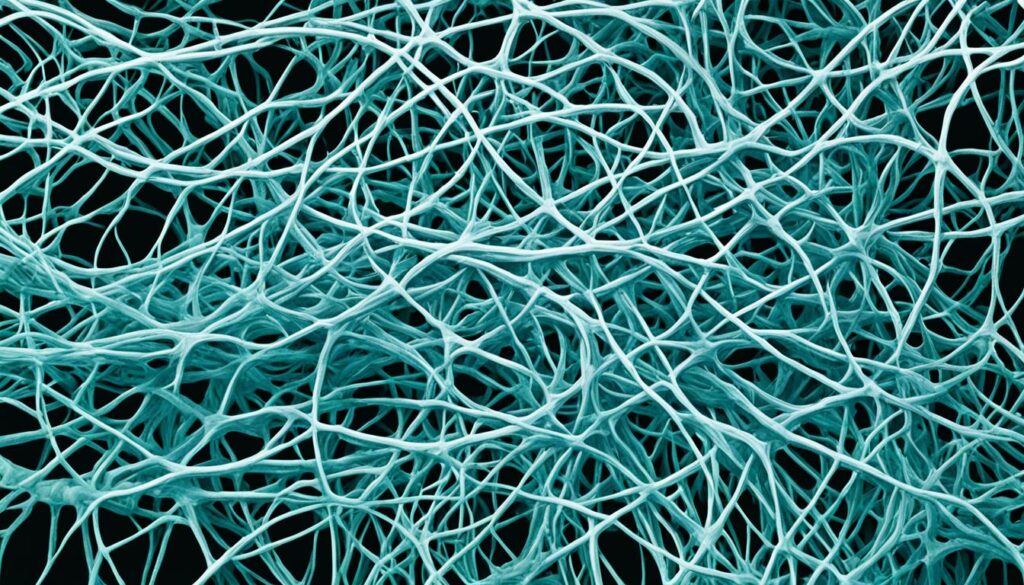
If you have a family history of CMT2, it's important to consult with a genetic counselor who can help determine the risk of inheriting the condition. Genetic testing may also be recommended to confirm the diagnosis and identify the specific genetic mutations involved.
Understanding the causes and inheritance patterns of CMT2 can provide valuable insights into its development and help individuals make informed decisions about their health and future.
Diagnosis and Treatment of Charcot Marie Tooth Disease Type 2
The diagnosis of Charcot Marie Tooth Disease Type 2 (CMT2) starts with a detailed medical and family history, along with a comprehensive neurological examination. This examination assesses muscle strength, reflexes, sensation, and coordination. Additionally, further tests may be carried out to confirm the diagnosis, such as a nerve conduction study or a muscle biopsy.
In a nerve conduction study, small electrodes are placed on the skin to measure the speed at which electrical impulses travel through the nerves. This test helps to evaluate the efficiency of nerve communication and identify any abnormalities. A muscle biopsy involves removing a small sample of muscle tissue for microscopic examination. This test can help determine if there is any loss or damage to muscle fibers.
While there is currently no cure for CMT2, treatment options focus on symptom management and improving overall quality of life. A multidisciplinary approach may be adopted, involving various healthcare professionals, including neurologists, physiotherapists, orthopedic specialists, and genetic counselors, depending on the individual's specific needs.
Physical therapy plays a crucial role in CMT2 treatment. It aims to improve muscle strength, coordination, and mobility. Specific exercises and techniques may be recommended to target weakness, enhance balance, and optimize overall functioning. Orthopedic devices, such as braces or splints, may also be prescribed to provide support, correct foot deformities, and improve gait stability.
Pain management strategies are essential for individuals experiencing discomfort associated with CMT2. This may involve nonsteroidal anti-inflammatory drugs (NSAIDs), pain medications, or other therapies to alleviate pain and improve overall well-being.
As CMT2 can affect the peripheral nerves in the lower limbs, assistive devices like canes, walkers, or ankle-foot orthoses (AFOs) may be recommended to aid in walking and maintain stability.
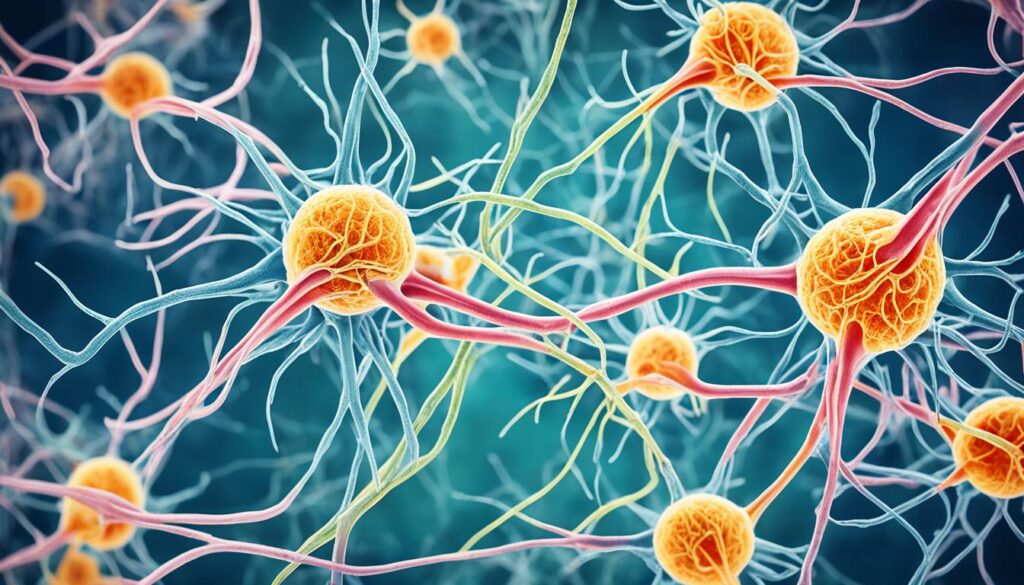
| Treatment options for CMT2 | Benefits |
|---|---|
| Physical therapy | - Improves muscle strength and coordination - Enhances mobility and balance - Optimizes overall functioning |
| Orthopedic devices (braces, splints) | - Provides support for foot deformities - Corrects gait abnormalities - Improves stability |
| Pain management | - Alleviates discomfort and pain - Enhances overall well-being |
| Assistive devices (canes, walkers, AFOs) | - Aids in walking and stability - Reduces the risk of falls - Supports mobility |
It is important for individuals with CMT2 to work closely with their healthcare team to develop a personalized treatment plan. Regular follow-up appointments and periodic assessments may be necessary to monitor disease progression and adjust treatment approaches accordingly.
Other Types of Charcot Marie Tooth Disease
Charcot Marie Tooth Disease (CMT) is a group of inherited disorders that affect the peripheral nerves. While Charcot Marie Tooth Disease Type 2 (CMT2), which we discussed earlier, primarily involves damage to the nerve axons, there are other subtypes of CMT, each with its own distinctive characteristics.
CMT1: Abnormalities in the Myelin Sheath
CMT1 is characterized by abnormalities in the myelin sheath, the protective covering around the nerve fibers. These abnormalities lead to ineffective nerve signal transmission, resulting in muscle weakness and sensory impairment. CMT1 is the most common form of CMT, accounting for approximately 50-70% of all cases. Genetic mutations in genes such as PMP22, MPZ, and GJB1 are associated with CMT1.
CMT3: Severe Demyelinating Neuropathy
CMT3, also known as Dejerine-Sottas disease, is a severe form of demyelinating neuropathy that typically manifests in infancy or early childhood. This subtype is characterized by progressive muscle weakness, sensory loss, and impaired reflexes. The progression of symptoms in CMT3 is usually more rapid and pronounced compared to other subtypes of CMT. Genetic mutations in genes such as PMP22, MPZ, EGR2, and PRX are associated with CMT3.
CMT4: Demyelinating and Axonal Neuropathies
CMT4 encompasses several subtypes of demyelinating and axonal neuropathies, each with its own distinct features. These subtypes exhibit a range of symptoms including muscle weakness, sensory loss, foot deformities, and varying degrees of disease severity. Genetic mutations in genes such as GDAP1, MTMR2, SH3TC2, and PRX are associated with CMT4.
CMTX1: X-linked Form of CMT
CMTX1 is an X-linked form of Charcot Marie Tooth Disease that affects both males and females. This subtype is caused by mutations in the GJB1 gene, which provides instructions for making a protein called connexin 32. CMTX1 is typically characterized by muscle weakness and atrophy in the lower limbs, as well as sensory loss and foot deformities. Because CMTX1 is inherited in an X-linked pattern, males are typically more severely affected than females.
In summary, Charcot Marie Tooth Disease encompasses several subtypes, each with its unique genetic mutations and clinical features. Understanding these different subtypes is crucial for accurate diagnosis and targeted treatment approaches.

Conclusion
Charcot Marie Tooth Disease Type 2 (CMT2) is a subcategory of Charcot Marie Tooth Disease that primarily affects the nerve axons, leading to distal weakness, sensory loss, and muscle atrophy. Although there is currently no cure for CMT, effective management strategies can help individuals with CMT2 maintain a good quality of life.
Diagnosing CMT2 involves a detailed medical history, a thorough neurological examination, and additional tests if necessary. These tests may include nerve conduction studies or muscle biopsies. By accurately identifying CMT2, individuals and their healthcare providers can design a tailored treatment plan.
Management of CMT2 involves a multidisciplinary approach. Physical therapy plays a crucial role in improving strength, mobility, and overall function. Orthopedic devices such as braces or splints may be prescribed to provide stability and prevent deformities. Pain management techniques can also help alleviate discomfort associated with peripheral neuropathy, a common symptom of CMT2.
While living with CMT2 may present challenges, understanding the symptoms, causes, and available management options can empower individuals and their families to navigate this condition with a proactive mindset. Through proper diagnosis, comprehensive treatment plans, and ongoing support, it is possible to effectively manage CMT2 and lead a fulfilling life.
FAQ
What is Charcot Marie Tooth Disease Type 2 (CMT2)?
Charcot Marie Tooth Disease Type 2 (CMT2) is a subtype of Charcot Marie Tooth Disease (CMT), which is a group of disorders that affect the peripheral nerves. CMT2 specifically affects the nerve axons, leading to distal weakness, muscle atrophy, and sensory loss in the arms and legs.
What are the symptoms of Charcot Marie Tooth Disease Type 2 (CMT2)?
The symptoms of CMT2 primarily manifest as distal weakness, atrophy, and sensory loss in the arms and legs. Individuals with CMT2 may experience weakness in their legs, ankles, and feet, resulting in difficulty walking and a higher than normal step. Other symptoms may include high foot arches, curled toes (hammertoes), decreased ability to run, frequent tripping or falling, and a decreased sensation or loss of feeling in the legs and feet. Muscle atrophy and foot deformities are also common in CMT2.
What causes Charcot Marie Tooth Disease Type 2 (CMT2) and how is it inherited?
CMT2 is primarily caused by genetic mutations that affect the nerves in the feet, legs, hands, and arms, resulting in direct damage to the nerve axons. The condition is usually inherited in an autosomal dominant pattern, meaning that if one of the parents is affected, a child has a 50 percent chance of inheriting the disorder. In some cases, CMT2 can be inherited in an autosomal recessive pattern, requiring the child to receive two mutated genes, one from each parent.
How is Charcot Marie Tooth Disease Type 2 (CMT2) diagnosed and treated?
The diagnosis of CMT2 begins with a detailed medical and family history, as well as a neurological examination. Additional tests, such as a nerve conduction study or muscle biopsy, may be conducted to confirm the diagnosis. While there is no cure for CMT2, treatment focuses on managing symptoms and improving quality of life. This may include physical therapy, orthopedic devices, pain management, and the use of assistive devices such as braces or splints.
Are there other types of Charcot Marie Tooth Disease (CMT)?
Yes, Charcot Marie Tooth Disease encompasses several subtypes, each with its own unique characteristics. CMT1 is caused by abnormalities in the myelin sheath, while CMT3 (Dejerine-Sottas disease) is a severe demyelinating neuropathy that usually begins in infancy. CMT4 comprises several subtypes of demyelinating and axonal neuropathies, and CMTX1 is an X-linked form of CMT that affects both males and females. Each subtype has its own associated gene mutations and clinical features.
Source Links
- https://www.ninds.nih.gov/health-information/disorders/charcot-marie-tooth-disease
- https://www.mda.org/disease/charcot-marie-tooth/types/cmt2
- https://www.mayoclinic.org/diseases-conditions/charcot-marie-tooth-disease/symptoms-causes/syc-20350517
Charcot Marie Tooth Disease: Effective Treatments
Charcot Marie Tooth Disease (CMT) is a group of inherited neurological disorders that affect the peripheral nerves and muscles in the body. While there is no cure for CMT, there are various treatment options available to help manage the symptoms and improve quality of life for individuals with this condition. These treatment options include medications to manage pain, physical and occupational therapy, the use of orthopedic devices, and in some cases, surgery. It is important for individuals with CMT to work closely with a multidisciplinary team of healthcare professionals to create a personalized treatment plan.
Key Takeaways:
- CMT is a group of inherited neurological disorders affecting the peripheral nerves and muscles.
- Treatment options for CMT include medications, therapy, orthopedic devices, and sometimes surgery.
- Working with a healthcare team is crucial in developing a personalized treatment plan.
- Medications can help manage pain and symptoms associated with CMT.
- Physical and occupational therapy can improve mobility and quality of life.
Diagnosing Charcot Marie Tooth Disease
Diagnosing Charcot Marie Tooth Disease involves a thorough evaluation by a healthcare provider. During the physical exam, your healthcare provider will assess various symptoms and signs that are characteristic of Charcot Marie Tooth Disease. These may include:
- Muscle weakness: Your healthcare provider will check for muscle weakness, particularly in the lower limbs, as CMT primarily affects the peripheral nerves.
- Reduced reflexes: Reflexes, such as the knee jerk reflex, may be diminished or absent due to the nerve damage associated with CMT.
- Foot deformities: Your healthcare provider will examine your feet for any deformities like high arches or hammertoes, which are common in CMT.
- Sensory loss: Sensory function will be assessed to determine if there is a loss of sensation in the feet and legs.
While the physical exam provides valuable initial insights, diagnostic tests are crucial for confirming a diagnosis of Charcot Marie Tooth Disease. These tests may include:
- Nerve conduction studies: This test measures the speed and strength of electrical signals as they travel through your nerves. It can help determine the extent of nerve damage in CMT.
- Electromyography (EMG): An EMG assesses the health of your muscles and the nerves controlling them. It can help differentiate between muscle and nerve disorders.
- Nerve biopsy: In some cases, a small sample of nerve tissue may be taken for examination under a microscope. This can provide additional information about the specific type of CMT and its genetic basis.
- Genetic testing: Genetic tests can identify the specific genetic defects associated with CMT. They can help confirm a diagnosis and determine the inheritance pattern of the disease.

| Diagnostic Tests | Purpose |
|---|---|
| Nerve Conduction Studies | Measure the speed and strength of electrical signals in the nerves to determine the extent of nerve damage. |
| Electromyography (EMG) | Evaluate the health of muscles and the nerves controlling them to differentiate between muscle and nerve disorders. |
| Nerve Biopsy | Examine a small sample of nerve tissue under a microscope to obtain additional information about the specific type of CMT and its genetic basis. |
| Genetic Testing | Identify the specific genetic defects associated with CMT to confirm a diagnosis and determine the inheritance pattern. |
Medications for Charcot Marie Tooth Disease
While there is no cure for Charcot Marie Tooth Disease (CMT), medications can be used to effectively manage the symptoms associated with this condition. These medications can provide relief from pain and muscle cramps, improving the overall quality of life for individuals with CMT.
Prescription pain medication may be prescribed to control the pain caused by muscle cramps or nerve damage experienced by individuals with CMT. These medications can help alleviate discomfort and improve daily functioning.
Non-steroidal anti-inflammatory drugs (NSAIDs) are another common type of medication used in the management of CMT. These medications can be helpful in alleviating joint and muscle pain, reducing inflammation, and improving mobility.
It is essential to work closely with a healthcare provider to determine the most appropriate medications and dosages for your specific symptoms and needs. Each individual with CMT may have varying symptoms and require a personalized approach to medication management.
Therapy for Charcot Marie Tooth Disease
Physical and occupational therapy play a crucial role in the comprehensive treatment plan for individuals with Charcot Marie Tooth Disease. These therapies focus on improving mobility, preventing disability, and enhancing overall quality of life. Through targeted exercises, muscle strengthening, and adaptive techniques, physical and occupational therapy can help individuals with CMT manage their symptoms effectively.
Physical Therapy
Physical therapy is a key component of the treatment plan for Charcot Marie Tooth Disease. It aims to strengthen and stretch the muscles to prevent muscle tightening and loss. Through low-impact exercises and stretching techniques, a trained physical therapist helps individuals maintain muscle function and improve their range of motion.
Specific exercises for CMT may include:
- Stretching exercises to improve flexibility and reduce muscle stiffness.
- Strength training exercises to enhance muscle tone and prevent muscle weakness.
- Balance and coordination exercises to improve stability and reduce the risk of falls.
A qualified physical therapist will customize the exercise program based on the individual's specific needs and capabilities. Regular physical therapy sessions, combined with at-home exercises, can significantly improve muscle strength and function for individuals with CMT.
Occupational Therapy
Occupational therapy focuses on helping individuals overcome challenges with everyday tasks and activities. It aims to improve independence and quality of life by teaching adaptive techniques and providing assistive devices if necessary. Occupational therapists work closely with individuals with CMT to develop personalized strategies for managing daily activities more effectively.
Some common areas of focus in occupational therapy for CMT include:
- Developing strategies for managing fatigue and conserving energy during daily activities.
- Adapting techniques for dressing, grooming, and self-care to accommodate muscle weakness or mobility limitations.
- Providing training for the use of assistive devices, such as special grips or clothing with easy fasteners.
- Modifying the home environment to enhance safety and accessibility.
Occupational therapy empowers individuals with CMT to maintain their independence and participate fully in everyday activities, despite the challenges posed by the condition.
Future Treatment Possibilities
In addition to current therapy options, ongoing research offers hope for potential future treatments for Charcot Marie Tooth Disease. Scientists are exploring innovative approaches, such as medication advancements and gene therapies, that could target the root causes of CMT and potentially provide more effective treatment options. Stem cell research shows promise in repairing nerve damage associated with CMT. While these potential treatments are in the experimental stage, they hold significant promise for the future management of CMT.

As research progresses, stay informed and speak with your healthcare provider about any potential future treatments that may become available for Charcot Marie Tooth Disease.
Orthopedic Devices for Charcot Marie Tooth Disease
Many individuals with Charcot Marie Tooth Disease require the use of orthopedic devices to maintain mobility and prevent injury. These devices provide support and assist in improving gait, stability, and overall function. Consulting with a healthcare provider is essential to determine the most appropriate orthopedic devices for each individual's specific needs.
The Role of Orthopedic Devices
Orthopedic devices play a crucial role in managing Charcot Marie Tooth Disease. They help individuals with CMT maintain mobility, prevent falls, and minimize the risk of complications associated with muscle weakness and foot deformities.
Here are several orthopedic devices commonly used in the treatment of Charcot Marie Tooth Disease:
- Leg and ankle braces or splints: These devices provide stability and support while walking, climbing stairs, and engaging in physical activities. They help correct foot drop and minimize the risk of trips and falls.
- Boots or high-top shoes: Recommended for individuals with ankle instability, these shoes provide additional support to the ankle joint and enhance overall stability.
- Custom-made shoes or shoe inserts: Designed to accommodate specific foot abnormalities, custom-made shoes or shoe inserts improve gait, relieve pressure points, and reduce the risk of foot ulcers.
- Thumb splints: These devices are used to address hand weakness and difficulties with gripping and holding objects. Thumb splints provide stability and support, enhancing hand function and improving daily activities.
Orthopedic devices should be tailored to each individual's unique needs and prescribed by a healthcare professional experienced in treating Charcot Marie Tooth Disease. Proper fitting and regular reassessment of the devices are crucial to ensure their effectiveness and continued benefit.

Benefits of Orthopedic Devices
The use of orthopedic devices in the treatment of Charcot Marie Tooth Disease offers several important benefits:
- Improved mobility: Orthopedic devices provide stability and support, enabling individuals with CMT to walk more comfortably and confidently.
- Enhanced safety: By preventing falls and reducing the risk of injuries, orthopedic devices help individuals with CMT maintain a higher level of safety in their daily activities.
- Reduced pain and discomfort: Properly fitted orthopedic devices can alleviate pain and discomfort associated with muscle weakness, foot deformities, and joint instability.
- Improved function: Orthopedic devices address specific limitations caused by Charcot Marie Tooth Disease, allowing individuals to perform essential tasks, such as walking, gripping objects, and maintaining balance, more effectively.
Consulting with a healthcare provider experienced in the treatment of Charcot Marie Tooth Disease is essential to identify the most suitable orthopedic devices, ensure proper fitting, and receive ongoing support and guidance.
Surgery for Charcot Marie Tooth Disease
In cases where foot deformities are severe and causing significant pain and mobility issues, surgery may be considered. Corrective foot surgery can help alleviate pain and improve the ability to walk. However, it is important to note that surgery cannot improve weakness or loss of sensation associated with Charcot Marie Tooth Disease. The decision to undergo surgery should be made in consultation with a healthcare provider and based on a thorough assessment of your condition and symptoms.

If you have severe foot deformities due to Charcot Marie Tooth Disease, surgery could be an option to relieve the pain and improve your walking ability. It's important to remember that surgery cannot address the weakness or loss of sensation caused by the disease. A healthcare provider will assess your condition and symptoms to determine if surgery is the right choice for you.
During the surgical procedure, a skilled surgeon will perform corrective foot surgery to correct the deformities and restore as much functionality as possible. This may involve realigning bones, fusing joints, or removing bone spurs. The specific surgical approach will depend on the nature and severity of your foot deformities.
Following surgery, you will need to follow a rehabilitation program to aid in your recovery. Physical therapy may be recommended to help you regain strength, flexibility, and balance. The duration and intensity of the rehabilitation will vary depending on the complexity of the surgery and your individual needs.
Benefits of Surgery for Charcot Marie Tooth Disease
Surgery for Charcot Marie Tooth Disease can provide several benefits, including:
- Relief from foot pain
- Improved ability to walk and perform daily activities
- Correction of foot deformities
- Enhanced quality of life
Risks and Considerations
While surgery can be beneficial, it is essential to consider the associated risks and potential limitations:
- Risks common to any surgical procedure, such as infection or anesthesia complications
- Possible recurrence or progression of foot deformities over time
- Cannot address weakness or loss of sensation
- Long recovery period
Consultation with a Healthcare Provider
If you are considering surgery for Charcot Marie Tooth Disease, it is important to have a thorough consultation with a healthcare provider. They can assess your specific condition, discuss the potential benefits and risks, and help you make an informed decision.
| Pros | Cons |
|---|---|
| Relief from foot pain | Possible recurrence or progression of deformities |
| Improved walking ability | Cannot address weakness or loss of sensation |
| Correction of foot deformities | Long recovery period |
| Enhanced quality of life |
Potential Future Treatments for Charcot Marie Tooth Disease
As researchers continue to delve into the complexities of Charcot Marie Tooth Disease (CMT), they are actively exploring potential future treatments that hold promise for individuals with this condition. These upcoming treatments aim to address the underlying causes of CMT and provide more targeted interventions to improve the lives of those affected.
Included among these potential future treatments are:
- Medications: Researchers are investigating new medications that can target the specific mechanisms and pathways involved in CMT. These medications may help alleviate symptoms, slow down disease progression, or even potentially reverse the damage caused by CMT.
- Gene Therapy: Another avenue of research is gene therapy, which involves delivering corrected genes into the body to replace the faulty ones responsible for CMT. This approach holds immense potential in preventing the passing of the disease to future generations and addressing the root cause of CMT.
- In Vitro Procedures: In vitro procedures involve interventions carried out outside of the body with the aim of preventing the transmission of CMT to future generations. These procedures may include techniques such as pre-implantation genetic diagnosis (PGD) or in vitro fertilization (IVF) with genetic testing to ensure the selection of embryos without the faulty genes associated with CMT.
- Stem Cell Research: Stem cell research is also showing promise in the field of CMT. Scientists are exploring the potential use of stem cells to repair damaged nerves and restore function in individuals with CMT. This groundbreaking approach has the potential to significantly improve the lives of those affected by this condition.
While these potential future treatments are still in the experimental stage and require further research and development, they offer hope for the future of CMT treatment. It is important for individuals with CMT and their healthcare providers to stay informed about the latest advancements in research and discuss these potential treatments as part of their overall management plan.
The Promise of Future Treatments
The exploration of potential future treatments for Charcot Marie Tooth Disease brings renewed hope and optimism for individuals affected by this condition. The advancements in medications, gene therapy, in vitro procedures, and stem cell research hold the potential to revolutionize the treatment landscape for CMT, offering new avenues for improved quality of life, symptom management, and potentially even a cure.
However, it is essential to note that these potential treatments are still in the early stages of development, and their widespread availability may take time. Rigorous clinical trials, regulatory approvals, and safety assessments are necessary steps to ensure their efficacy and safety. Therefore, it is crucial for individuals with CMT to maintain open communication with their healthcare providers and participate in discussions about possible future treatments as a part of their comprehensive care plan.
Self-Care Tips for Managing Charcot Marie Tooth Disease
Along with medical treatments, implementing self-care practices is essential for individuals with Charcot Marie Tooth Disease to effectively manage their symptoms and prevent complications. By adopting these self-care habits, you can improve your quality of life and maintain overall well-being.
Regular Stretching Exercises
To enhance joint mobility and reduce the risk of joint deformities, incorporate regular stretching exercises into your daily routine. These exercises help to keep your muscles flexible and prevent stiffness.
Daily Low-Impact Exercise
Engage in daily low-impact activities like biking and swimming to strengthen your muscles, enhance balance and coordination, and improve overall physical fitness. These exercises are gentle on your joints while still providing a great workout.
Proper Foot Care
To prevent complications and maintain healthy feet, pay attention to foot care. Regularly inspect your feet for any signs of injury or infection. Take care of your nails by keeping them trimmed and clean. Wear properly fitting shoes with good arch support to reduce the risk of foot problems.
Maintain a Healthy Weight
Excess weight can put additional strain on your muscles and joints. Aim to maintain a healthy weight through a balanced diet and regular exercise. Consult with a healthcare professional or a registered dietitian to create a personalized nutrition plan that suits your specific needs.
Avoid Excessive Alcohol Consumption
Excessive alcohol consumption can have negative effects on your overall health and well-being. Limit your alcohol intake or avoid it altogether to minimize the impact on your symptoms and overall functioning.
Practice Good Posture
Improper posture can exacerbate muscle weakness and alignment issues commonly associated with Charcot Marie Tooth Disease. Be mindful of your posture while sitting, standing, and walking. Maintain a straight back and try to distribute your weight evenly to alleviate strain on specific areas of your body.
Self-Care Tips for Managing Charcot Marie Tooth Disease
| Self-Care Tip | Description |
|---|---|
| Regular Stretching Exercises | Improve joint mobility and reduce the risk of joint deformities. |
| Daily Low-Impact Exercise | Strengthen muscles, improve balance, and enhance coordination. |
| Proper Foot Care | Inspect feet, take care of nails, and wear properly fitting shoes. |
| Maintain a Healthy Weight | Manage a balanced diet and engage in regular exercise to maintain a healthy weight. |
| Avoid Excessive Alcohol Consumption | Limit alcohol intake to minimize the impact on symptoms and overall functioning. |
| Practice Good Posture | Maintain a straight back and distribute weight evenly to alleviate strain on the body. |
By incorporating these self-care tips into your daily routine, you can effectively manage your Charcot Marie Tooth Disease symptoms and improve your overall quality of life.

Conclusion
Charcot Marie Tooth Disease (CMT) is a complex neurological disorder that affects the peripheral nerves and muscles in the body. Although there is currently no cure for CMT, there are several effective management strategies available to help individuals with this condition. By working closely with a multidisciplinary team of healthcare professionals, individuals can create a personalized treatment plan that combines medications, physical and occupational therapy, the use of orthopedic devices, and, in some cases, surgery.
Ongoing research into potential future treatments brings hope for advancements in CMT treatment. Researchers are exploring the use of medications, gene therapy, and in vitro procedures to prevent the passing of the disease to future generations. Stem cell research is also underway to repair nerve damage associated with CMT. Staying informed about these developments and discussing potential future treatments with a healthcare provider is important.
In addition to medical treatments, self-care practices play a crucial role in managing CMT. Regular stretching exercises, daily low-impact activities, and foot care can help improve joint mobility, strengthen muscles, and prevent complications. Maintaining a healthy lifestyle, including maintaining a healthy weight, avoiding excessive alcohol consumption, and practicing good posture, can further support overall well-being for individuals with CMT.
In conclusion, while there is no cure for Charcot Marie Tooth Disease, individuals can optimize their quality of life and maintain overall well-being by combining medical treatments with self-care practices. By staying informed about new research and working closely with healthcare professionals, individuals can effectively manage the symptoms of CMT and live as independently as possible.
FAQ
What is Charcot Marie Tooth Disease?
Charcot Marie Tooth Disease (CMT) is a group of inherited neurological disorders that affect the peripheral nerves and muscles in the body.
Are there any effective treatments for Charcot Marie Tooth Disease?
While there is no cure for CMT, there are various treatment options available to help manage the symptoms and improve quality of life for individuals with this condition.
How is Charcot Marie Tooth Disease diagnosed?
Diagnosing Charcot Marie Tooth Disease involves a physical exam and various diagnostic tests.
What medications are used to manage symptoms of Charcot Marie Tooth Disease?
Medications can be used to help manage symptoms such as pain and muscle cramps.
What role does therapy play in the treatment of Charcot Marie Tooth Disease?
Physical and occupational therapy are essential components of the treatment plan for individuals with Charcot Marie Tooth Disease.
Are orthopedic devices helpful for individuals with Charcot Marie Tooth Disease?
Many individuals with Charcot Marie Tooth Disease require the use of orthopedic devices to maintain mobility and prevent injury.
Is surgery an option for individuals with Charcot Marie Tooth Disease?
In cases where foot deformities are severe and causing significant pain and mobility issues, surgery may be considered.
What potential future treatments are being explored for Charcot Marie Tooth Disease?
Researchers are actively exploring potential future treatments for Charcot Marie Tooth Disease, including the use of medications, gene therapy, and stem cell research.
Are there any self-care tips for managing Charcot Marie Tooth Disease?
In addition to medical treatments, there are several self-care practices that can help individuals with Charcot Marie Tooth Disease manage their symptoms and prevent complications.
Source Links
- https://www.ninds.nih.gov/health-information/disorders/charcot-marie-tooth-disease
- https://www.nhs.uk/conditions/charcot-marie-tooth-disease/treatment/
- https://www.mayoclinic.org/diseases-conditions/charcot-marie-tooth-disease/diagnosis-treatment/drc-20350522
Ways of endovascular aneurysm Repair Coiling VS open Surgery (clipping)
Repairing brain aneurysms. Let's begin by understanding what a brain aneurysm is. Picture a tiny balloon popping up in one of the blood vessels in your brain. This is essentially what an aneurysm looks like. It's a weak spot on the blood vessel wall that bulges out, and if it bursts, it can lead to serious health problems, even life-threatening ones.
Now, how do doctors fix these aneurysms? The two primary methods are clipping and coiling. Clipping is an older technique, akin to placing a miniature clamp on the aneurysm. This method is quite straightforward but requires a surgical procedure where doctors open the skull to access the brain. It’s like putting a clip at the base of the balloon to prevent it from inflating further. This process effectively seals off the aneurysm from the blood vessel, thus preventing the risk of it bursting or re-bleeding if it had already ruptured.
The clipping method has been a cornerstone in neurosurgery for decades and is known for its effectiveness in providing a long-lasting solution. By isolating the aneurysm from the normal blood circulation, the risk of bleeding is significantly reduced, offering peace of mind and stability for the patient.
What Is Clipping Of Brain Aneurysm?
- Like a Tiny Clamp: Clipping is like putting a tiny clamp on the balloon (aneurysm) to stop blood from getting in. This method is a bit older and involves surgery to open the skull.
- Preventing a Burst: By clipping the aneurysm, doctors prevent it from bursting or re-bleeding if it already burst once.
- A Permanent Solution: Once clipped, the aneurysm is usually fixed for good.
- Coiling: A Modern Approach to Treating Brain Aneurysms
Moving on to coiling - a more contemporary method in the Treatment Of A Ruptured Aneurysm. This technique is less invasive than clipping and has revolutionized how we approach these dangerous bulges in the brain. Unlike clipping, coiling doesn’t require opening up the skull. Instead, it involves a delicate procedure where doctors insert a thin tube (called a catheter) into a blood vessel, usually starting from the groin. They then guide this tube through the body’s network of vessels all the way to the brain and into the aneurysm.
Once the catheter is correctly positioned inside the aneurysm, doctors use it to deploy tiny coils - thin wires made of platinum or other materials - into the aneurysm. These coils are designed to fill up the space inside the aneurysm, thereby blocking blood flow into it. This reduces the risk of the aneurysm rupturing. The procedure is delicate, requiring exceptional skill and precision, as it navigates through the body's maze of blood vessels to reach the brain.
The beauty of coiling lies in its minimally invasive nature. Patients typically experience quicker recovery times compared to clipping. However, it’s important to note that coiling may not be a one-time fix. In some cases, the aneurysm may require additional coils later on, or the coils may compact over time, necessitating further intervention. As per the latest guidelines coiling is preferred over clipping to fix brain aneurysm as patients tend to live longer and have a better outcome.
What makes coiling particularly interesting is the variety of coils available, each designed for specific scenarios and aneurysm types. In the next section, we’ll explore these different coils and how they enhance the coiling procedure’s effectiveness.
What is Coiling?
Filling the Balloon: Coiling is a newer method where doctors go through the blood vessels, reach the aneurysm, and fill it with tiny coils.
Less Invasive: This doesn't require opening the skull. It's done with a small tube (catheter) inserted usually from the groin.
Blocking Blood Flow: The coils block blood flow into the aneurysm, preventing it from bursting.
Exploring the Different Types of Coils in Aneurysm Treatment
In the realm of coiling for brain aneurysm treatment, the diversity of coils plays a crucial role in tailoring the procedure to each patient's unique needs. These coils are not one-size-fits-all; instead, they come in various shapes, sizes, and materials, each with specific features and purposes. Let's delve into the main types of coils used in aneurysm coiling.
Metal Coils
The most common type is the bare metal coil, typically made of platinum/nickel or chromium. These coils work by filling up the aneurysm, which promotes blood clotting within the aneurysm, cutting off its blood supply and preventing rupture. The platinum material is chosen for its durability, biocompatibility, and the precise control it offers during the procedure.
Coated Coils
Some coils come with a special biological or polymer coating. This coating is designed to enhance clotting within the aneurysm more rapidly and effectively than bare metal coils. The idea is to speed up the natural healing process, thereby providing a more immediate and robust seal within the aneurysm.
Flow-Diverting Stents
A more recent advancement is the flow-diverting coil. These are designed not just to fill the aneurysm but to redirect blood flow away from it. By altering the flow dynamics around the aneurysm, these coils reduce the pressure on the aneurysm wall, significantly lowering the risk of rupture. They are particularly useful in larger or more complex aneurysms where traditional coiling techniques might be less effective.
Each type of coil has its place in the toolkit of neurointerventional procedures. The choice of coil depends on various factors, including the size, shape, and location of the aneurysm, as well as the patient's overall health and specific circumstances. The development of these diverse coils is a testament to the advancements in medical technology, offering more options and hope to patients with brain aneurysms.
Clipping vs. Coiling: Choosing the Right Treatment
When it comes to fixing brain aneurysms, the big question often is: should we go for clipping or coiling? Both methods have their pros and cons, and the choice largely depends on the aneurysm's size, location, and shape, as well as the patient’s overall health and specific medical history. Let's compare these two techniques to understand when one might be preferred over the other.
Clipping
Clipping is a tried-and-tested method that’s been around for decades. It involves a surgical procedure where the skull is opened to place a metal clip at the base of the aneurysm. This method is highly effective and often provides a permanent solution. It's especially useful for certain types of aneurysms, depending on their location and shape. However, being a more invasive surgery, it comes with the risks associated with open brain surgery, such as longer recovery time and potential complications.
Coiling
Coiling, on the other hand, is less invasive. It involves threading a catheter through the blood vessels to the aneurysm and filling it with coils. This method is generally quicker to recover from and has fewer immediate risks compared to open surgery. It's particularly advantageous for aneurysms that are hard to access surgically. However, one potential downside is that it might not be a permanent fix – some aneurysms may need additional coiling later on.
Making the Choice
The decision between clipping and coiling is made after careful consideration by a team of neurosurgeons and interventional neurologists. Factors like the patient’s age, the aneurysm’s size and position, and the presence of other medical conditions play a crucial role in this decision.
In the end, both clipping and coiling are effective ways to treat brain aneurysms. The evolution of these techniques represents a significant leap forward in neurosurgery and interventional neurology, offering hope and improved outcomes for patients with this challenging condition.
Understanding Chronic Fatigue Syndrome FAQs
Welcome to our comprehensive guide on chronic fatigue syndrome (CFS)! In this article, we will delve into the fundamental FAQs to help you gain a better understanding of this complex condition and its impact on your daily life.
Chronic fatigue syndrome is characterized by profound fatigue that lasts for at least six months and is not relieved by rest. It is accompanied by cognitive dysfunction, sleep problems, and post-exertional malaise. Living with CFS can be challenging, but with knowledge and support, you can effectively manage its symptoms.
Throughout this article, we will address common questions about chronic fatigue syndrome and provide valuable insights into its definition, classification, potential causes, symptoms, and available treatment options. Our aim is to empower you with the information you need to take control of your health and make informed decisions.
Whether you have recently been diagnosed with CFS or suspect that you may have it, this guide will be a valuable resource for you. We understand the importance of accurate information in managing chronic conditions, and we are here to help you every step of the way.
To enhance your understanding of chronic fatigue syndrome and its complexities, let's begin with the basics. What exactly is chronic fatigue syndrome, and how is it classified? Read on to unravel these FAQs and gain a deeper insight into this condition.
What is Chronic Fatigue Syndrome?
Chronic fatigue syndrome, also known as myalgic encephalomyelitis, is a debilitating condition characterized by chronic, profound, disabling, and unexplained fatigue that lasts for at least six months. The symptoms of CFS often worsen with physical or mental activity and do not fully improve with rest.
There is currently no consensus agreement among medical professionals on how to definitively diagnose CFS. However, in the International Classification of Diseases (ICD-11), CFS is classified under Chapter 8: Diseases of the Nervous System, within the code 8E49 Postviral fatigue syndrome.

Chronic fatigue syndrome is a complex and often misunderstood condition. It can have a significant impact on individuals' daily lives, causing physical, cognitive, and emotional challenges. Understanding the symptoms and classification of CFS is crucial in diagnosing and managing the condition effectively. In the next section, we will explore the causes and risk factors of chronic fatigue syndrome to provide you with a comprehensive understanding of this condition.
Causes and Risk Factors of Chronic Fatigue Syndrome
Chronic fatigue syndrome (CFS) is a complex condition with no known exact cause. However, several factors have been associated with its development. Understanding these causes and risk factors can provide valuable insights into managing and preventing CFS.
Genetics
Genetics may play a role in the development of chronic fatigue syndrome. Some individuals may have a familial predisposition, making them more likely to develop the disorder. Although the specific genes involved have not yet been identified, research suggests a genetic component to CFS.
Infections
Infections, particularly viral infections, have been linked to the onset of CFS symptoms. It is believed that an infection triggers an immune response that leads to a chronic state of fatigue and other debilitating symptoms. Common viral infections associated with CFS include Epstein-Barr virus, herpes viruses, and enteroviruses.
Physical or Emotional Trauma
Physical or emotional trauma can precede the development of chronic fatigue syndrome. Injuries, surgeries, or significant stressors can act as triggers for CFS symptoms. The body's response to trauma may disrupt normal physiological functions, leading to persistent fatigue and other associated symptoms.
Age and Gender
Chronic fatigue syndrome commonly affects young to middle-aged adults. The condition can occur at any age, but it is most prevalent in individuals between their 20s and 40s. Additionally, women are diagnosed with CFS more often than men. The reasons for this gender bias are not entirely understood and require further research.
| Risk Factors | Description |
|---|---|
| Genetics | Familial predisposition, specific genes yet to be identified |
| Infections | Viral or bacterial infections, such as Epstein-Barr virus |
| Physical or Emotional Trauma | Injuries, surgeries, significant stress |
| Age and Gender | Commonly affects young to middle-aged adults, women more often diagnosed |

Understanding the causes and risk factors associated with chronic fatigue syndrome is crucial for appropriate management and prevention strategies. By addressing potential triggers and risk factors, individuals may be able to reduce the impact of CFS on their daily lives. If you suspect you may have CFS, consult a healthcare professional for a comprehensive evaluation and personalized treatment plan.
Symptoms of Chronic Fatigue Syndrome
The symptoms of chronic fatigue syndrome (CFS) can vary from person to person and may fluctuate in severity. It is important to recognize the signs of CFS as early diagnosis can lead to better management and quality of life. Here are some common symptoms associated with CFS:
- Extreme fatigue: The hallmark symptom of CFS is debilitating fatigue that is not relieved by rest and lasts for at least six months.
- Cognitive dysfunction: Many individuals with CFS experience difficulties with memory, concentration, and overall cognitive function.
- Dizziness upon standing: Orthostatic intolerance is a common symptom where individuals feel lightheaded or dizzy when they stand up.
- Muscle or joint pain: Chronic pain, particularly in the muscles and joints, is often reported by those with CFS.
- Unrefreshing sleep: Despite getting enough sleep, individuals with CFS wake up feeling tired and unrefreshed.
- Headaches: Recurring headaches or migraines can be a symptom of CFS.
- Sore throat: Some individuals may experience a persistent and sore throat without any other underlying cause.
- Tender lymph nodes: Swollen or tender lymph nodes in the neck or armpits are commonly reported in CFS.
- Heightened sensitivity: Individuals with CFS may have an increased sensitivity to light, sound, smells, food, and medications.
It is important to note that everyone with CFS may experience these symptoms differently. While these symptoms can be distressing and impact daily life, understanding them can help individuals seek appropriate medical care and support.

Diagnosis and Treatment of Chronic Fatigue Syndrome
Diagnosing chronic fatigue syndrome (CFS) can be a complex process due to the absence of a definitive test. A comprehensive medical evaluation is necessary to rule out other health conditions with similar symptoms. Your healthcare provider will consider your medical history, perform a physical examination, and order certain tests to assist in the diagnosis. These tests may include blood tests to check for certain markers, imaging studies to rule out other conditions, and assessments to evaluate cognitive function.
Once a diagnosis of CFS is confirmed, the focus shifts to managing and alleviating the symptoms associated with the condition. chronic fatigue syndrome treatment typically involves a multimodal approach that combines various strategies to improve your overall well-being. It is important to work closely with your healthcare team to develop an individualized treatment plan that addresses your specific needs and goals.
Lifestyle Modifications: Making lifestyle modifications can play a significant role in managing CFS symptoms. By pacing your activities and avoiding excessive physical or mental exertion, you can help conserve your energy levels. Implementing stress management techniques, such as relaxation exercises and mindfulness practices, can also contribute to better symptom control.
Cognitive-Behavioral Therapy (CBT): CBT is a form of psychotherapy that focuses on identifying and changing negative thought patterns and behaviors. It can be beneficial for individuals with CFS by helping them develop coping strategies, manage stress, and improve their overall quality of life.
Graded Exercise Therapy (GET): GET is a structured exercise program that gradually increases physical activity levels over time. Under the supervision of a healthcare professional, GET aims to improve stamina, reduce fatigue, and enhance overall functioning. It is essential to start GET at an appropriate intensity and progress gradually to avoid exacerbating symptoms.
Medications: While there are no specific medications approved for the treatment of CFS, certain medications may be prescribed to manage specific symptoms or comorbid conditions. These may include pain relievers, sleep aids, or medications to address mood disturbances or other associated problems.
Alternative and Complementary Therapies: Some individuals with CFS may find relief from symptoms through alternative or complementary therapies such as acupuncture, massage therapy, or herbal supplements. It is crucial to discuss these options with your healthcare provider before incorporating them into your treatment plan.
Support and Self-Care: Living with CFS can be challenging, both physically and emotionally. Surrounding yourself with a supportive network of family, friends, and healthcare professionals can provide the necessary encouragement and understanding. Engaging in self-care practices, such as getting adequate rest, maintaining a balanced diet, and participating in activities that bring joy and relaxation, can also contribute to your overall well-being.
Remember, every individual with CFS may respond differently to treatment approaches. It may take time and patience to find the strategies that work best for you. With the support of your healthcare team and a proactive approach to managing your symptoms, you can take steps towards improving your quality of life.
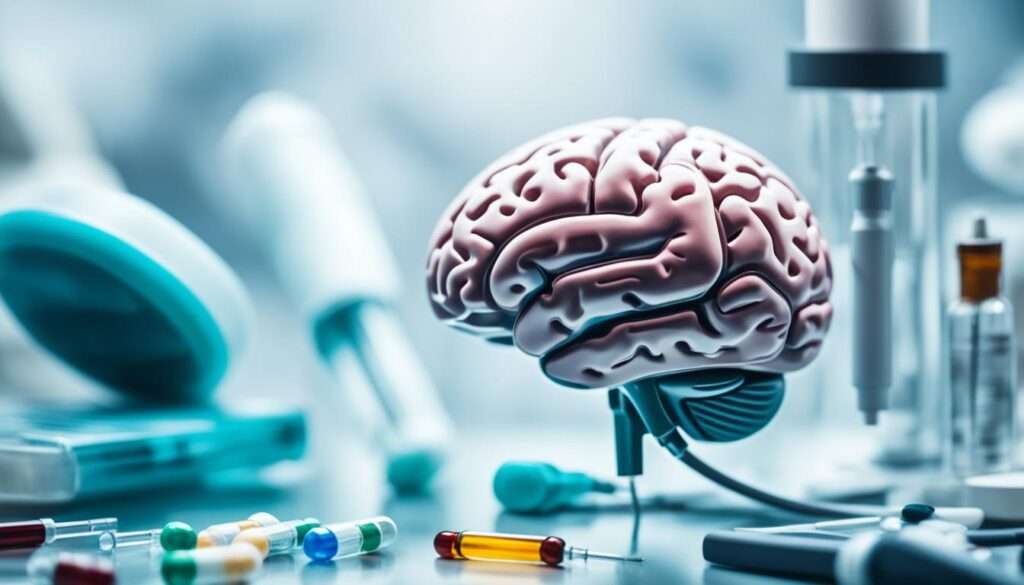
Conclusion
Chronic fatigue syndrome is a complex condition that can have a significant impact on your daily life. While there is still much to learn about its causes and the best treatment approaches, developing a better understanding of CFS and its associated symptoms can empower you to seek the appropriate medical care and make informed lifestyle choices.
If you are experiencing persistent fatigue or related symptoms, it's important to consult with a healthcare professional for an accurate diagnosis and an individualized treatment plan. Remember, you are not alone in this journey, and there is support available to help you manage chronic fatigue syndrome.
By educating yourself about CFS and working closely with your healthcare team, you can take steps towards improving your quality of life and finding ways to effectively manage the challenges that come with this condition. Don't hesitate to reach out for assistance and explore the resources available to you. Together, we can navigate the complexities of chronic fatigue syndrome and strive for a brighter future.
FAQ
What is chronic fatigue syndrome?
Chronic fatigue syndrome, also known as myalgic encephalomyelitis, is a complex and debilitating condition characterized by chronic, profound, disabling, and unexplained fatigue that lasts for at least six months. The symptoms of CFS often worsen with physical or mental activity and do not fully improve with rest.
How is chronic fatigue syndrome classified?
In the International Classification of Diseases (ICD-11), chronic fatigue syndrome is classified under Chapter 8: Diseases of the Nervous System, within the code 8E49 Postviral fatigue syndrome.
What causes chronic fatigue syndrome?
The exact cause of chronic fatigue syndrome is still unknown. However, genetics, infections, physical or emotional trauma, age, and gender are considered potential contributing factors.
What are the symptoms of chronic fatigue syndrome?
The symptoms of chronic fatigue syndrome can vary but commonly include extreme fatigue, cognitive dysfunction, dizziness upon standing, muscle or joint pain, unrefreshing sleep, headaches, sore throat, tender lymph nodes, and heightened sensitivity to light, sound, smells, food, and medications.
How is chronic fatigue syndrome diagnosed?
Diagnosing chronic fatigue syndrome can be challenging, as there is no single test for confirmation. A thorough medical evaluation is necessary to rule out other health problems with similar symptoms.
How is chronic fatigue syndrome treated?
Treatment for chronic fatigue syndrome focuses on managing and alleviating symptoms. This may involve lifestyle modifications, cognitive-behavioral therapy, graded exercise therapy, and medications to address specific symptoms and comorbid conditions.
Where can I find support for managing chronic fatigue syndrome?
If you are experiencing persistent fatigue or related symptoms, it is important to consult with a healthcare professional for an accurate diagnosis and individualized treatment plan. There are support groups and organizations available that can provide resources and assistance in managing chronic fatigue syndrome.
Source Links
- https://www.who.int/standards/classifications/frequently-asked-questions/chronic-fatigue-syndrome
- https://www.ncbi.nlm.nih.gov/books/NBK557676/
- https://www.mayoclinic.org/diseases-conditions/chronic-fatigue-syndrome/symptoms-causes/syc-20360490
Optimal Cervical Dystonia Treatments
If you or a loved one is living with cervical dystonia, you understand the challenges it presents. The involuntary muscle contractions in the neck can significantly impact your quality of life. That's why finding the best treatment for cervical dystonia is crucial for managing symptoms effectively and finding much-needed relief.
In this article, we explore the leading therapies for cervical dystonia and provide expert advice on the most optimal treatments available. Whether you're seeking information for yourself or looking to support someone you care about, our goal is to equip you with the knowledge you need to make informed decisions about managing cervical dystonia.
From medications and therapies to surgical options and emerging treatments, we'll cover it all. Understanding the various options and their potential benefits can help you work with your healthcare team to develop a personalized treatment plan that addresses your specific needs.
Stay informed and discover the latest advances in the field of cervical dystonia treatment. Together, we can navigate this condition and find effective ways to reduce symptoms, improve well-being, and enhance quality of life.
Medications for Cervical Dystonia
One of the most common and effective treatments for cervical dystonia is the use of botulinum toxin injections. These injections, commonly known as Botox, Dysport, Xeomin, or Myobloc, are directly injected into the affected neck muscles. They provide relief by paralyzing the muscles temporarily, reducing muscle contractions and alleviating symptoms. In some cases, oral medications with muscle-relaxing effects may also be prescribed to complement the botulinum toxin injections.

Therapies for Cervical Dystonia
In addition to medication, various therapies can help manage cervical dystonia. Incorporating these therapies into your treatment plan can provide relief and improve your quality of life. Let's explore some effective therapies:
Sensory Tricks
One of the sensory tricks commonly used by individuals with cervical dystonia is touching the opposite side of the face or the back of the head. This simple technique can temporarily stop muscle spasms and provide a sense of relief.
Heat Packs and Massage
Using heat packs on the neck and shoulder muscles can help relax the tense muscles, reducing pain and stiffness. Additionally, regular massage therapy can provide deep relaxation, promote blood circulation, and relieve muscle tension.
Neck Exercises
Engaging in specific neck exercises can improve neck strength and flexibility, which can ultimately help alleviate the symptoms of cervical dystonia. It is important to consult with a physical therapist or healthcare professional to determine the appropriate exercises for your condition.
Stress Management Techniques
Stress often exacerbates the symptoms of cervical dystonia. Learning effective stress management techniques such as deep breathing exercises, meditation, and mindfulness can help reduce stress levels and improve overall well-being.
By incorporating these therapies into your treatment regimen, you can complement the effects of medication and better manage the symptoms of cervical dystonia.

| Therapy | Benefits |
|---|---|
| Sensory tricks | Temporary relief from muscle spasms |
| Heat packs and massage | Relaxes neck and shoulder muscles, reduces pain and stiffness |
| Neck exercises | Improves neck strength and flexibility |
| Stress management techniques | Reduces stress levels, improves overall well-being |
Surgical and Procedural Options
When less invasive treatments fail to provide adequate relief, surgical and procedural interventions may be considered. These options offer alternative approaches to managing cervical dystonia and can provide significant improvement in symptoms for some individuals.
Deep Brain Stimulation (DBS)
One surgical intervention for cervical dystonia is deep brain stimulation (DBS). This procedure involves placing a wire into the brain to deliver electrical pulses that interrupt the nerve signals responsible for the involuntary muscle contractions. DBS has shown promising results in reducing symptoms and improving the quality of life for patients with cervical dystonia.

Surgical Nerve Severing
Another surgical option involves the selective severing of the nerves that carry the contraction signals to the affected muscles. By cutting these nerves, the abnormal contractions can be effectively disrupted, leading to a reduction in symptoms and improved motor control.
It is important to note that surgical interventions like DBS and nerve severing are typically considered when other treatments have not provided satisfactory results. These procedures require careful evaluation and consideration by a medical professional specializing in movement disorders.
Clinical Trials and Emerging Treatments
Researchers and scientists are constantly exploring new treatments for cervical dystonia through clinical trials and research studies. These trials aim to discover more effective and innovative therapies for managing the condition.
Participating in clinical trials can provide patients with access to cutting-edge treatments and contribute to the advancement of medical knowledge. Some of these emerging therapies include experimental drug therapies and other interventions that show promise in providing better relief for cervical dystonia.
Research Studies
Research studies play a crucial role in understanding the causes, mechanisms, and potential treatments for cervical dystonia. Through rigorous scientific investigation, researchers can gather valuable data to improve the current understanding of the condition and develop more targeted and effective therapies. These studies often involve patient participation, and individuals who take part can contribute directly to the progress of medical science.
Experimental Treatments
Experimental treatments are innovative approaches that are still being evaluated for their effectiveness in managing cervical dystonia. These therapies may include novel medications, neurostimulation techniques, or other interventions designed to alleviate symptoms and improve quality of life. While experimental treatments are not yet widely available, they show promise as potential future options for individuals with cervical dystonia.

Comparison of Current Treatments and Emerging Therapies
| Treatment | Benefits | Limitations |
|---|---|---|
| Botulinum toxin injections | - Temporarily reduce muscle contractions - Provide symptom relief | - Repeated injections required - Potential side effects |
| Physical therapy | - Improve neck strength and flexibility - Relieve muscle tension | - May not be effective for everyone - Time-consuming |
| Deep brain stimulation | - Significant improvement in symptoms for some - Long-term relief | - Invasive procedure - Potential risks and complications |
| Experimental drug therapies | - Potential for targeted symptom control - Novel approaches | - Limited availability - Unknown long-term effects |
It's important to consult with your healthcare provider to determine the most suitable treatment option for your specific needs. They can provide guidance on available clinical trials and emerging therapies that may be relevant to your condition. Participating in these research studies can not only offer potential benefits to you but also contribute to the overall advancement of cervical dystonia management.
Coping and Support for Cervical Dystonia
Dealing with cervical dystonia can be challenging, both physically and emotionally. Severe cases of the condition can lead to feelings of isolation and depression. It is essential to seek out support and connect with others who are experiencing similar challenges.
There are numerous organizations and support groups that provide valuable information, resources, and a sense of community for individuals with cervical dystonia and their families. These support networks offer a safe space to discuss concerns, share experiences, and learn from others who are going through similar journeys.
Additionally, learning and utilizing coping strategies can greatly help manage the symptoms of cervical dystonia and improve overall well-being. Here are some strategies you can try:
- Stay informed: Educate yourself about cervical dystonia, its symptoms, and treatment options. This knowledge can empower you to make informed decisions and help you understand what to expect.
- Practice relaxation techniques: Engage in activities that promote relaxation and stress reduction, such as deep breathing exercises, meditation, or yoga. These techniques can help alleviate tension and enhance your overall well-being.
- Seek professional help: Consider working with a therapist or counselor who specializes in movement disorders. They can provide valuable guidance, support, and coping strategies tailored to your specific needs.
- Stay active: Engaging in regular physical exercise, such as gentle stretching or low-impact activities, can improve muscle strength, flexibility, and overall mobility. Discuss appropriate exercises with your healthcare provider.
- Connect with others: Reach out to support groups or online communities dedicated to cervical dystonia. Connecting with others who share your experiences can provide a sense of belonging, understanding, and valuable emotional support.
Remember, coping with cervical dystonia is a journey, and it's essential to be patient and kind to yourself. Utilize the available resources and reach out for support when needed. You are not alone in this.
Seeking Medical Help for Cervical Dystonia
If you suspect you have cervical dystonia, it is crucial to seek medical help from a healthcare professional, preferably a neurologist specializing in movement disorders. The diagnosis of cervical dystonia often involves a physical examination, medical history review, and possibly additional tests such as blood tests or an MRI to rule out underlying conditions.
During your appointment, be prepared to discuss your symptoms, medical history, and any medications you are currently taking. Working closely with a specialist can help determine the most appropriate treatment plan for your specific needs.
Understanding the Diagnosis Process
When you visit a neurologist for a potential cervical dystonia diagnosis, they will begin by conducting a physical examination. This examination may involve evaluating your posture, neck movement, and muscle tension in the affected area. The neurologist will also review your medical history, asking about any past neurological conditions or injuries that may be relevant.
Based on the physical examination and medical history, your neurologist may order additional tests such as blood tests or an MRI. These tests help rule out any underlying medical conditions that may be causing your symptoms, ensuring an accurate diagnosis and appropriate treatment plan.
Discussing Your Symptoms and Medical History
During your appointment with the neurologist, it is essential to be open and honest about your symptoms. Describe the nature of your muscle contractions, the severity and frequency of the episodes, and any factors that may trigger or worsen them.
Moreover, provide a detailed medical history, including any past surgeries, medical conditions, or medications you are currently taking. Some medications can contribute to muscle spasms and may need to be adjusted or discontinued under medical supervision.
Collaborating with a Specialist
Working closely with a neurologist who specializes in movement disorders can significantly benefit your treatment journey. They have specific expertise in diagnosing and managing conditions like cervical dystonia, ensuring you receive the most up-to-date and effective treatment options.
Your neurologist will assess your symptoms, medical history, and test results to develop a personalized treatment plan. This plan may involve a combination of medication, physical therapy, and other therapeutic interventions tailored to your specific needs.
It is important to maintain regular communication with your neurologist throughout your treatment journey. Inform them of any changes in your symptoms, medication side effects, or concerns you may have. This open dialogue will help ensure the treatment plan is adjusted as needed to achieve optimal results and improve your quality of life.
Conclusion
Cervical dystonia is a challenging condition that requires comprehensive treatment approaches. By exploring the leading therapies, including botulinum toxin injections, various therapies, surgical options, and emerging treatments, individuals with cervical dystonia can find effective strategies for managing their symptoms.
It is important to seek support from healthcare professionals, participate in clinical trials if available, and connect with support groups to navigate the physical and emotional aspects of living with the condition. Remember, finding the best treatment for cervical dystonia may require patience and a personalized approach, so working closely with your healthcare team is vital.
In summary, by staying informed about the latest advancements in cervical dystonia treatments, utilizing a combination of therapies, seeking professional guidance, and staying actively involved in your treatment journey, you can enhance your overall well-being and improve your quality of life. Takeaway the key information from this article and apply it to your own situation, ensuring you have the necessary support and resources to manage your cervical dystonia effectively.
FAQ
What are the best treatments for cervical dystonia?
The best treatments for cervical dystonia include botulinum toxin injections, medication with muscle-relaxing effects, various therapies, surgical options, and emerging treatments.
What is the role of botulinum toxin injections in treating cervical dystonia?
Botulinum toxin injections, commonly known as Botox, Dysport, Xeomin, or Myobloc, are a common and effective treatment for cervical dystonia. These injections are directly injected into the affected neck muscles, temporarily paralyzing them and reducing muscle contractions.
What other therapies can help manage cervical dystonia?
In addition to medication, various therapies such as sensory tricks, heat packs, massage, specific exercises, and stress management techniques can help manage cervical dystonia by temporarily stopping muscle spasms, relaxing muscles, improving neck strength and flexibility, and reducing stress.
What are the surgical and procedural options for cervical dystonia?
Surgical and procedural options for cervical dystonia include deep brain stimulation (DBS), which involves placing a wire into the brain to send electrical pulses, and surgically severing the nerves that carry the contraction signals to the affected muscles. These interventions can provide significant improvement in symptoms for some individuals.
What are the emerging treatments for cervical dystonia?
Researchers are constantly exploring new treatments for cervical dystonia through clinical trials and research studies. Some emerging treatments include experimental drug therapies and other interventions that show promise in providing better relief for this condition.
How can I cope with cervical dystonia and find support?
Dealing with cervical dystonia can be challenging both physically and emotionally. It is important to seek support from support groups and organizations that provide information and resources for individuals with cervical dystonia and their families. Additionally, learning coping strategies can help manage symptoms and improve overall well-being.
What should I do if I suspect I have cervical dystonia?
If you suspect you have cervical dystonia, it is crucial to seek medical help from a healthcare professional, preferably a neurologist specializing in movement disorders. This will involve a physical examination, medical history review, and possibly additional tests to confirm the diagnosis and create an appropriate treatment plan.
How can I find the best treatment for my cervical dystonia?
Finding the best treatment for cervical dystonia may require a personalized approach and working closely with your healthcare team. It is important to explore the leading therapies, stay informed about emerging treatments, participate in clinical trials if available, and seek support from support groups to effectively manage your symptoms.
Source Links
- https://www.ncbi.nlm.nih.gov/pmc/articles/PMC3495548/
- https://www.mayoclinic.org/diseases-conditions/cervical-dystonia/diagnosis-treatment/drc-20354128
- https://www.ncbi.nlm.nih.gov/pmc/articles/PMC5323428/

